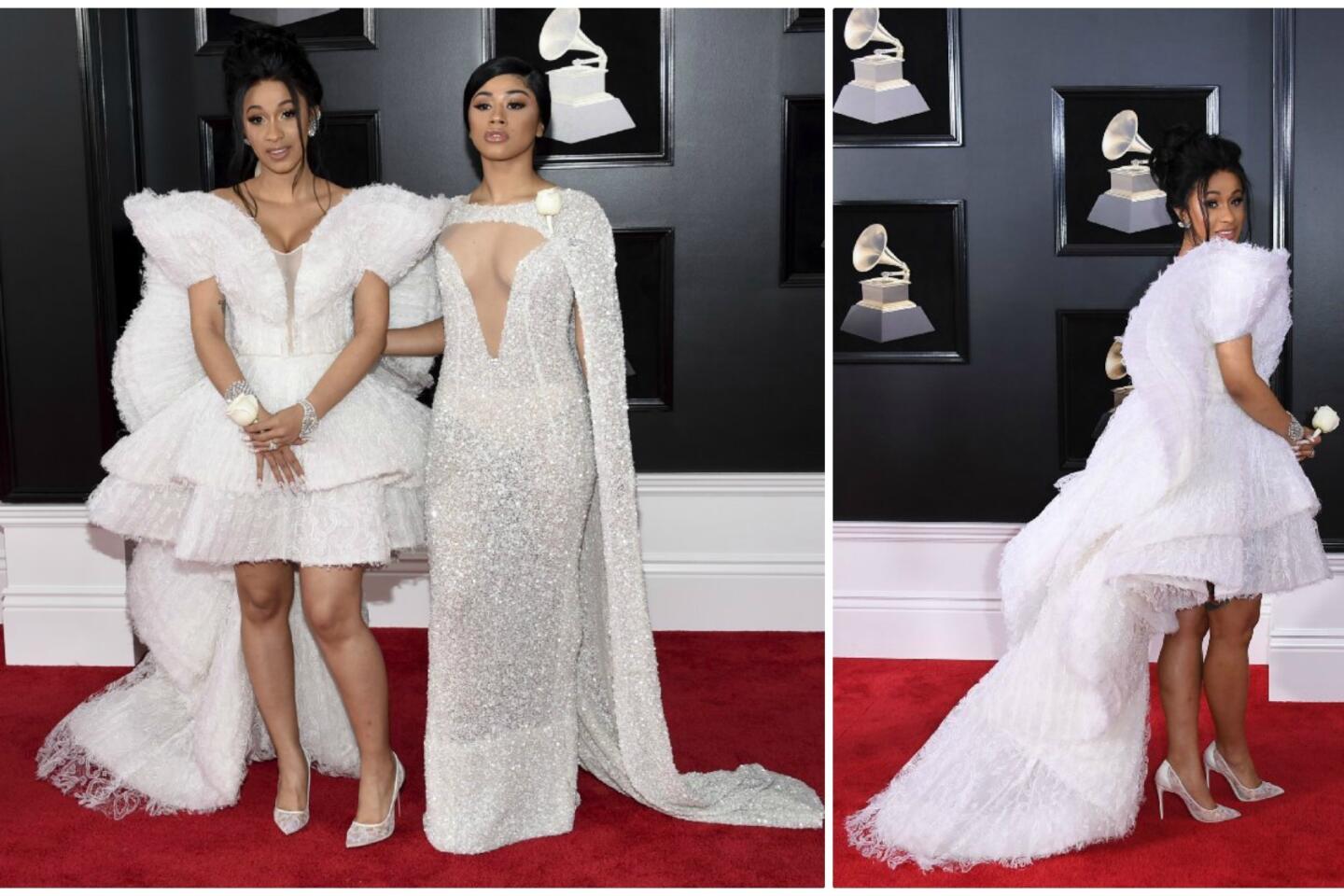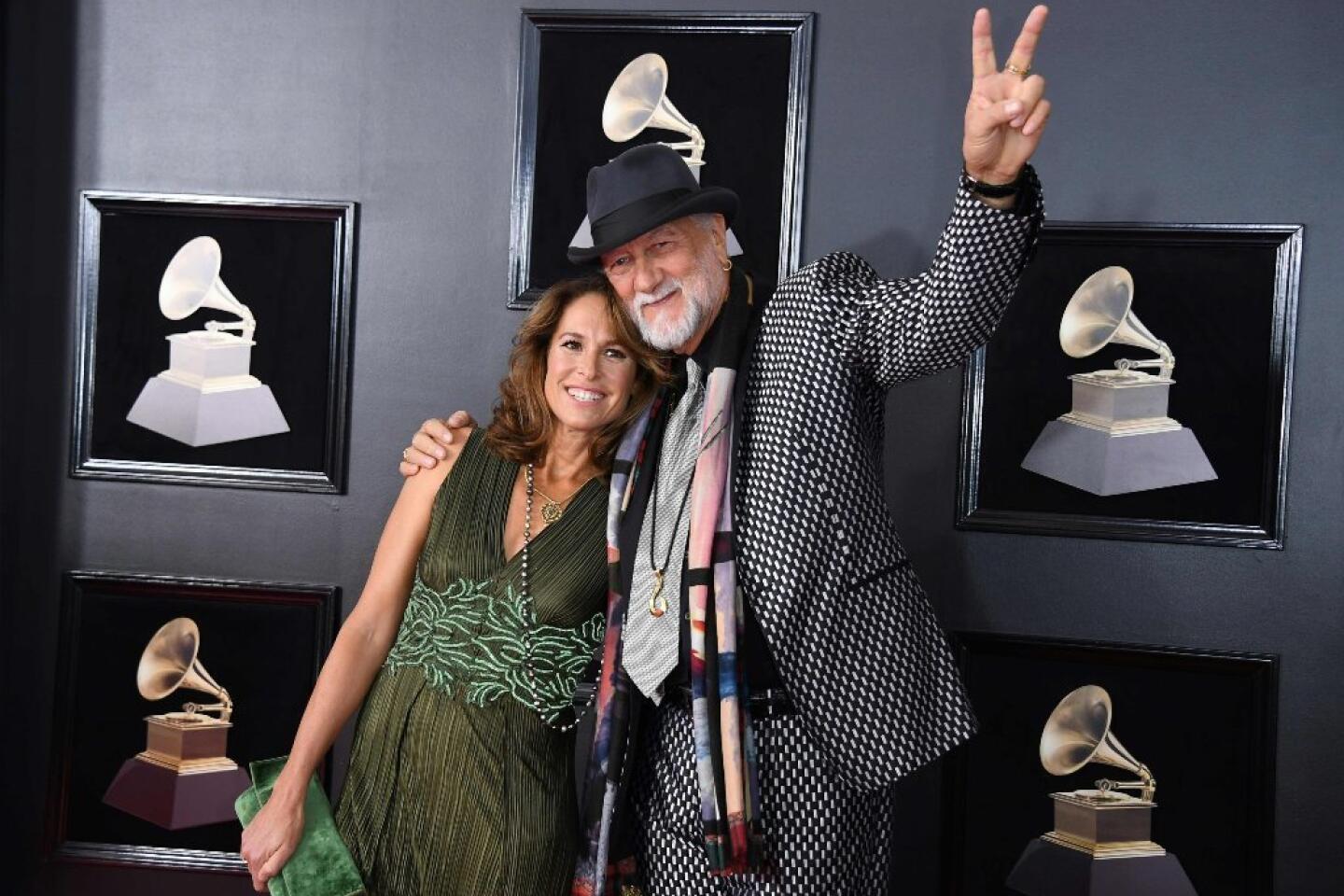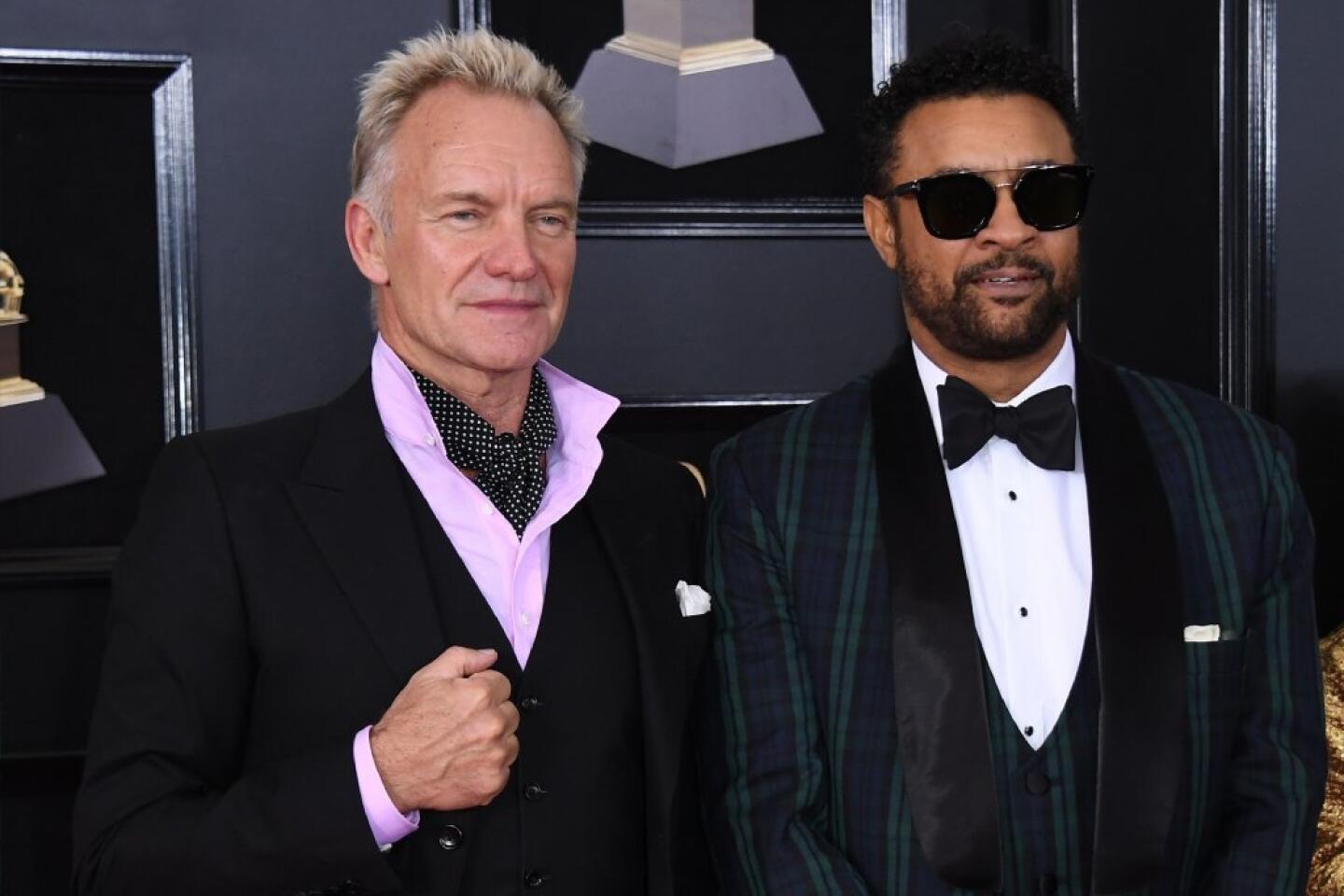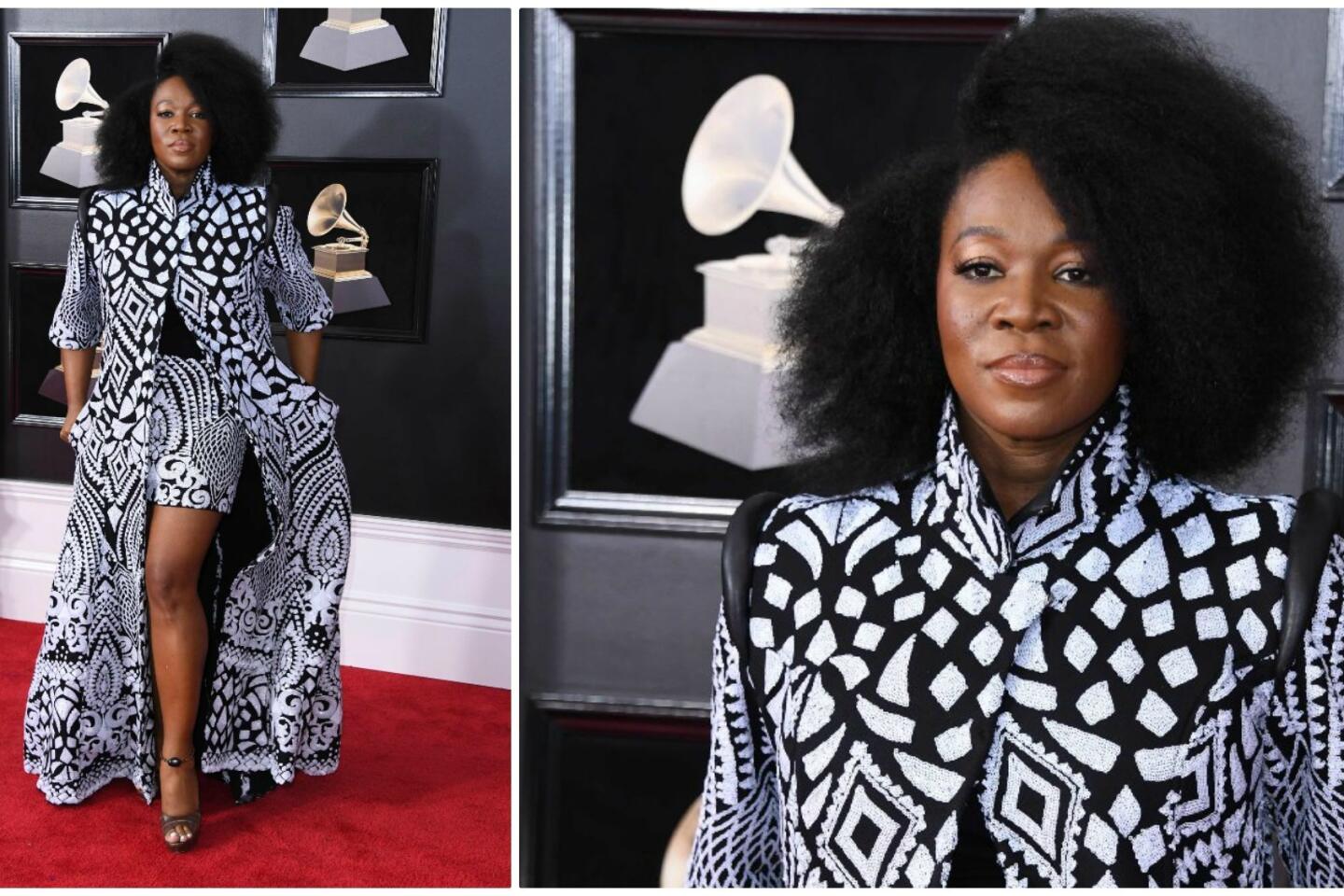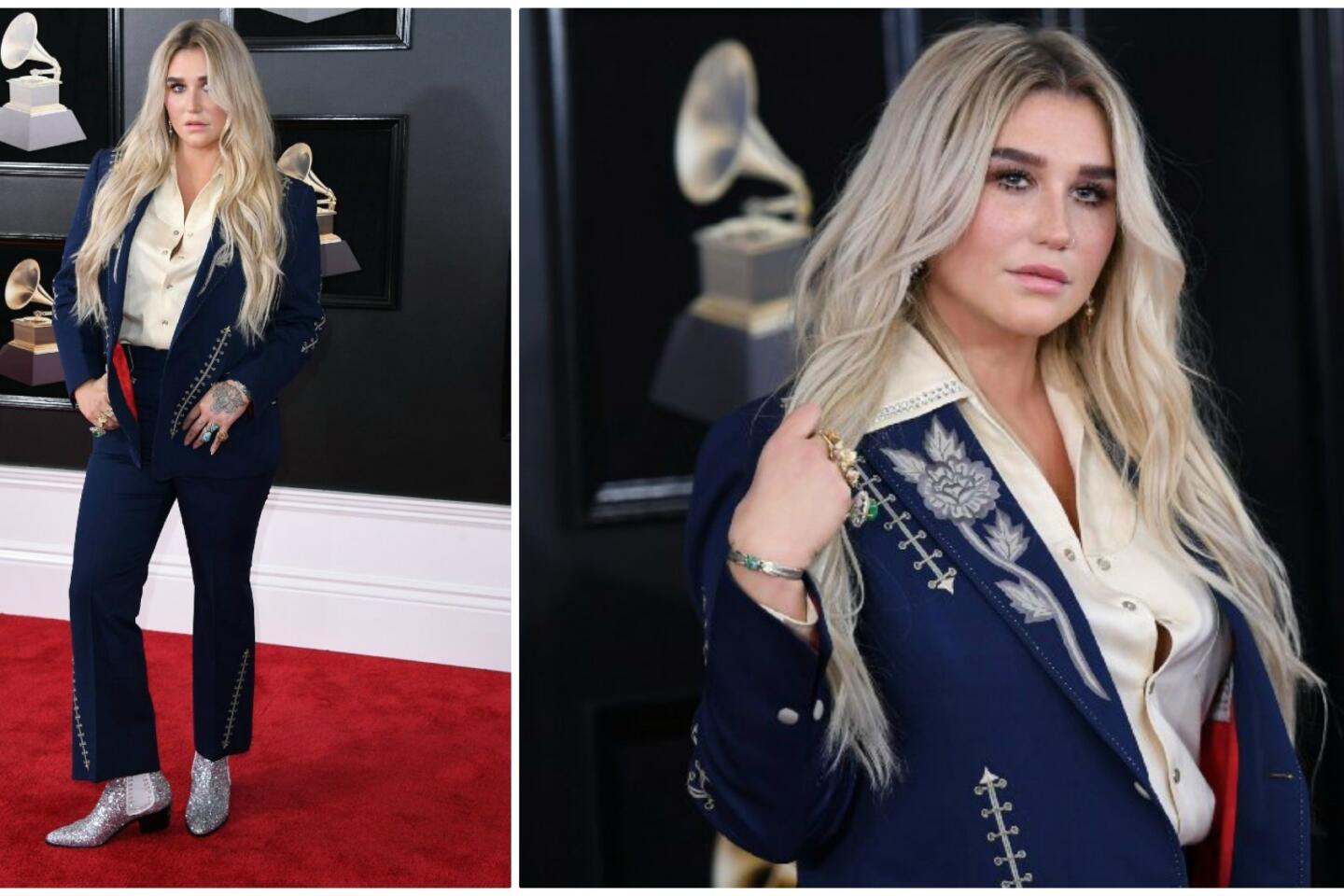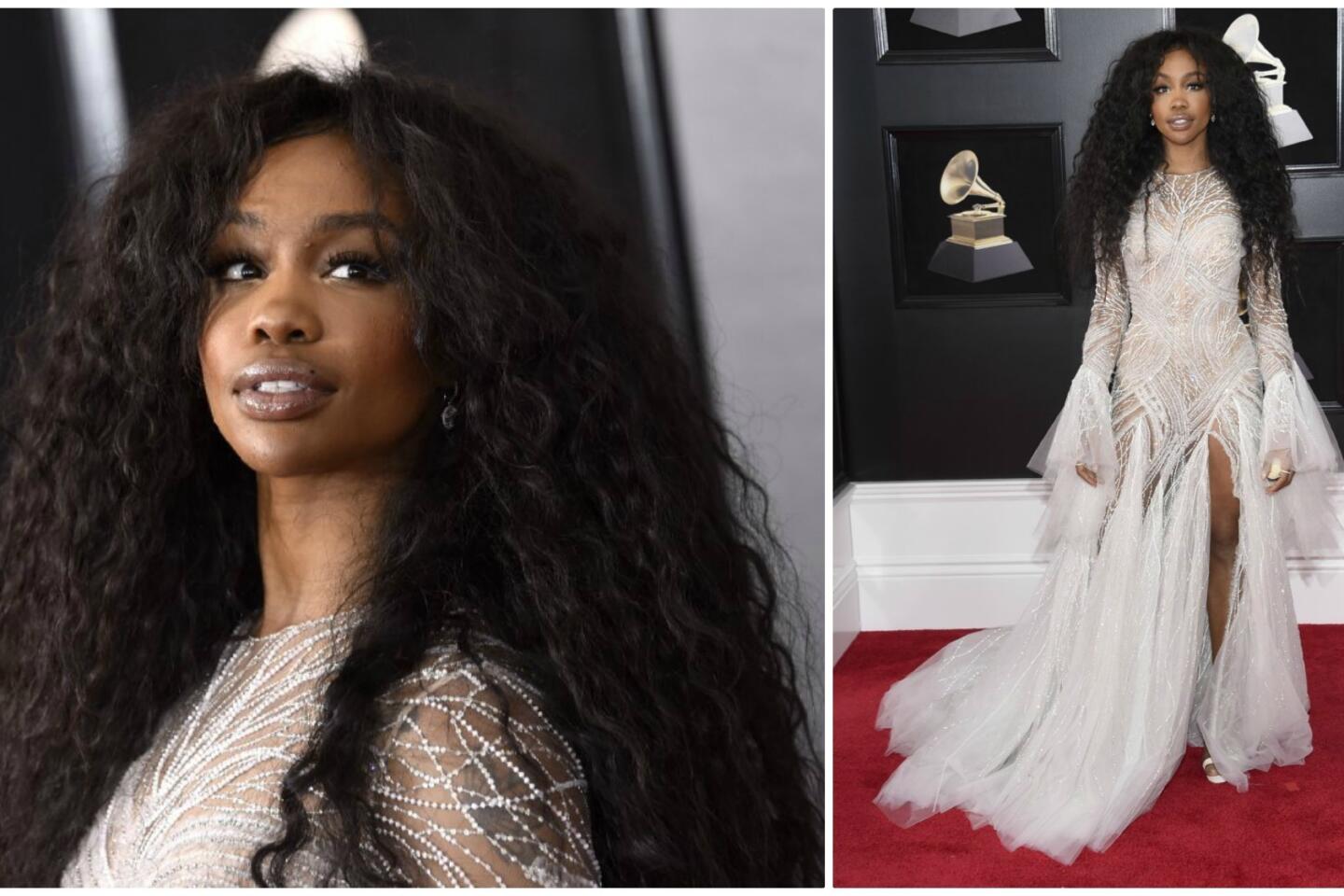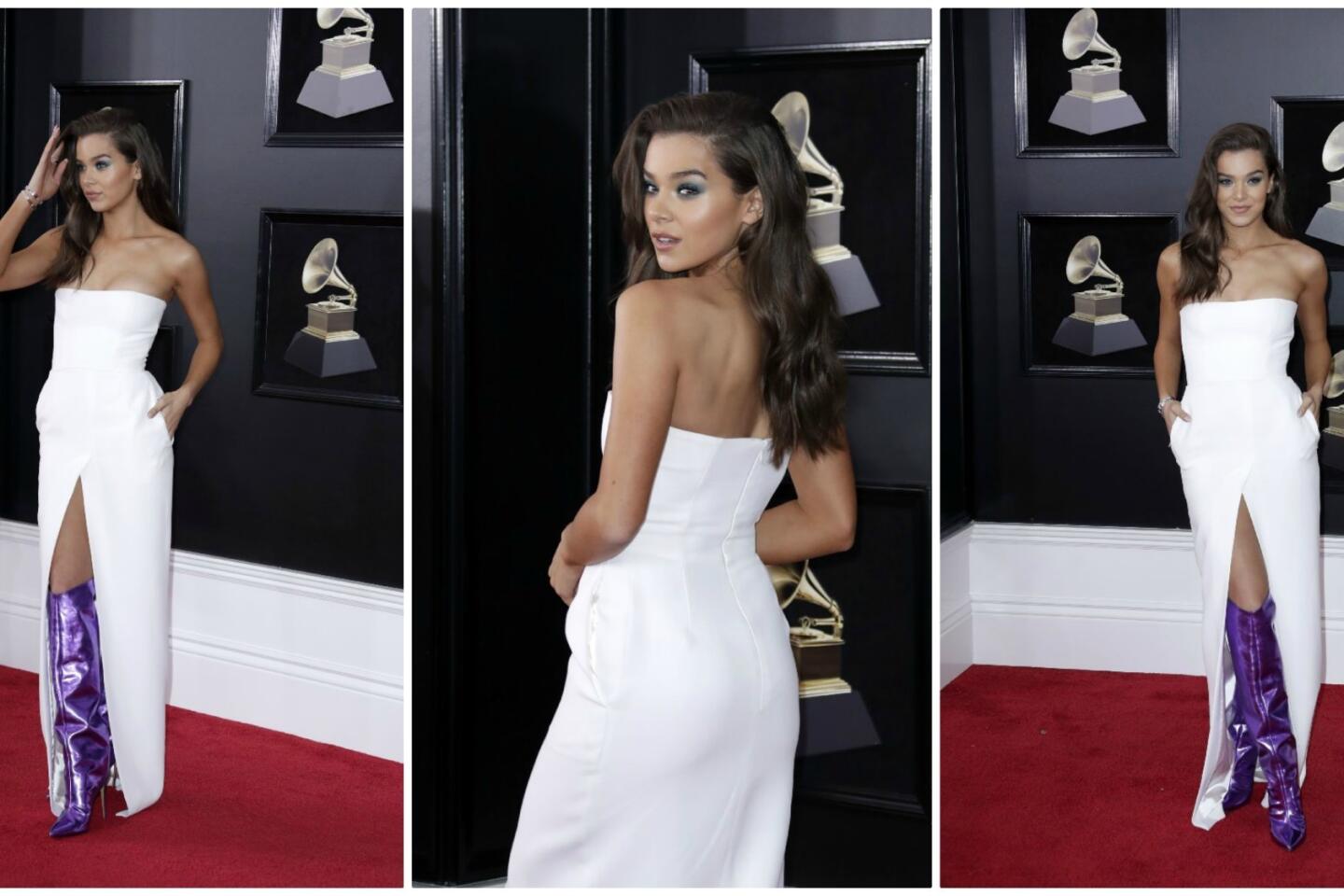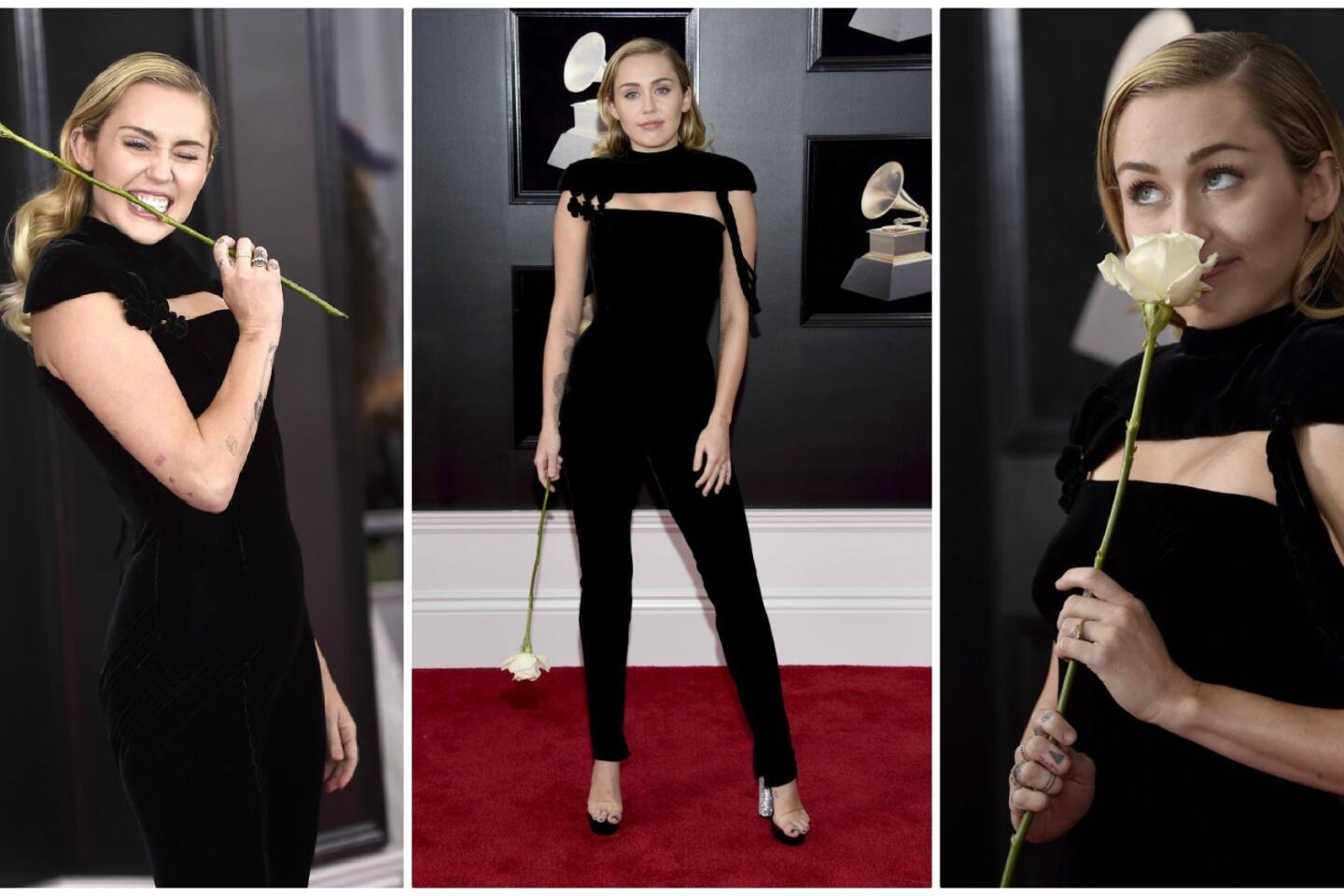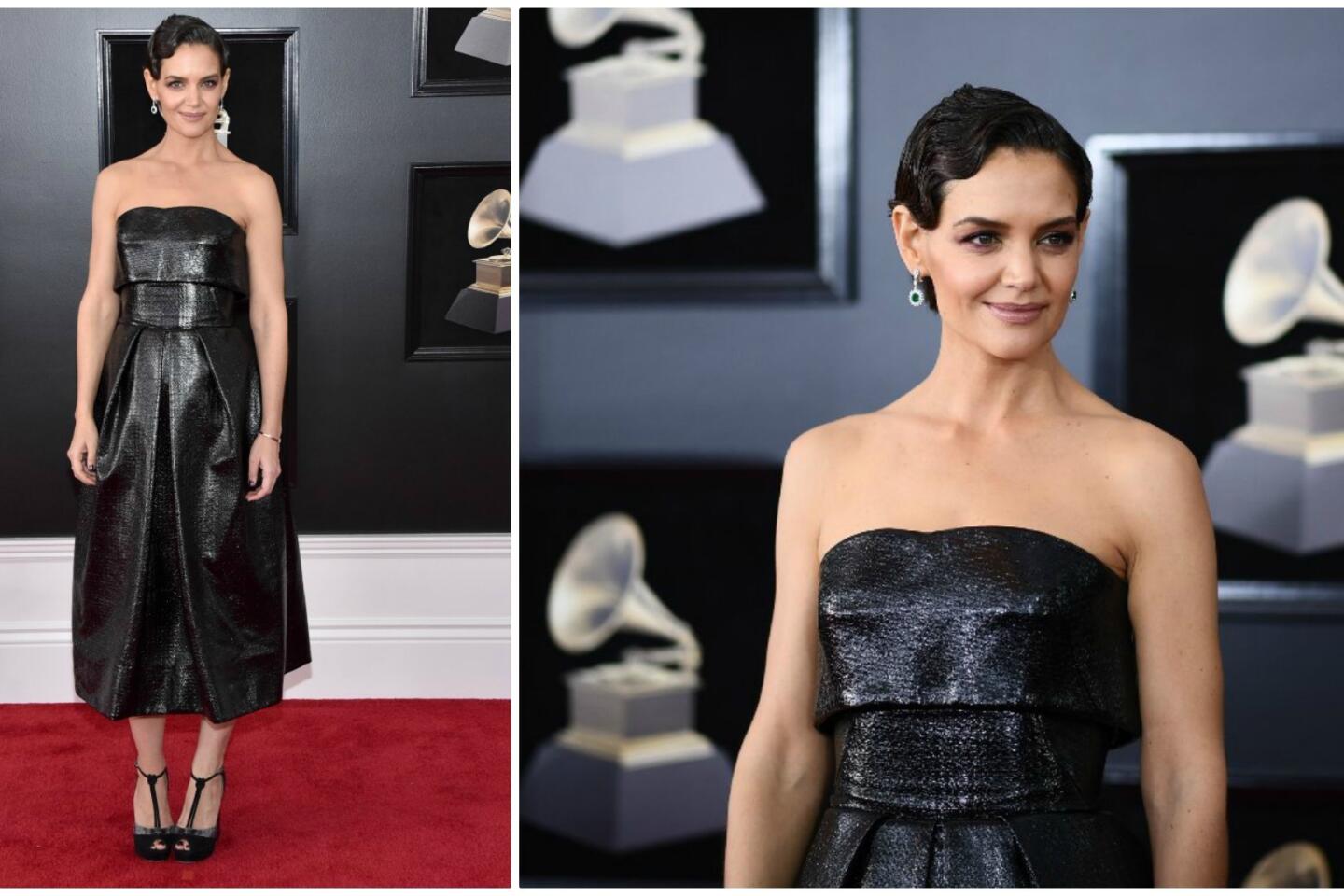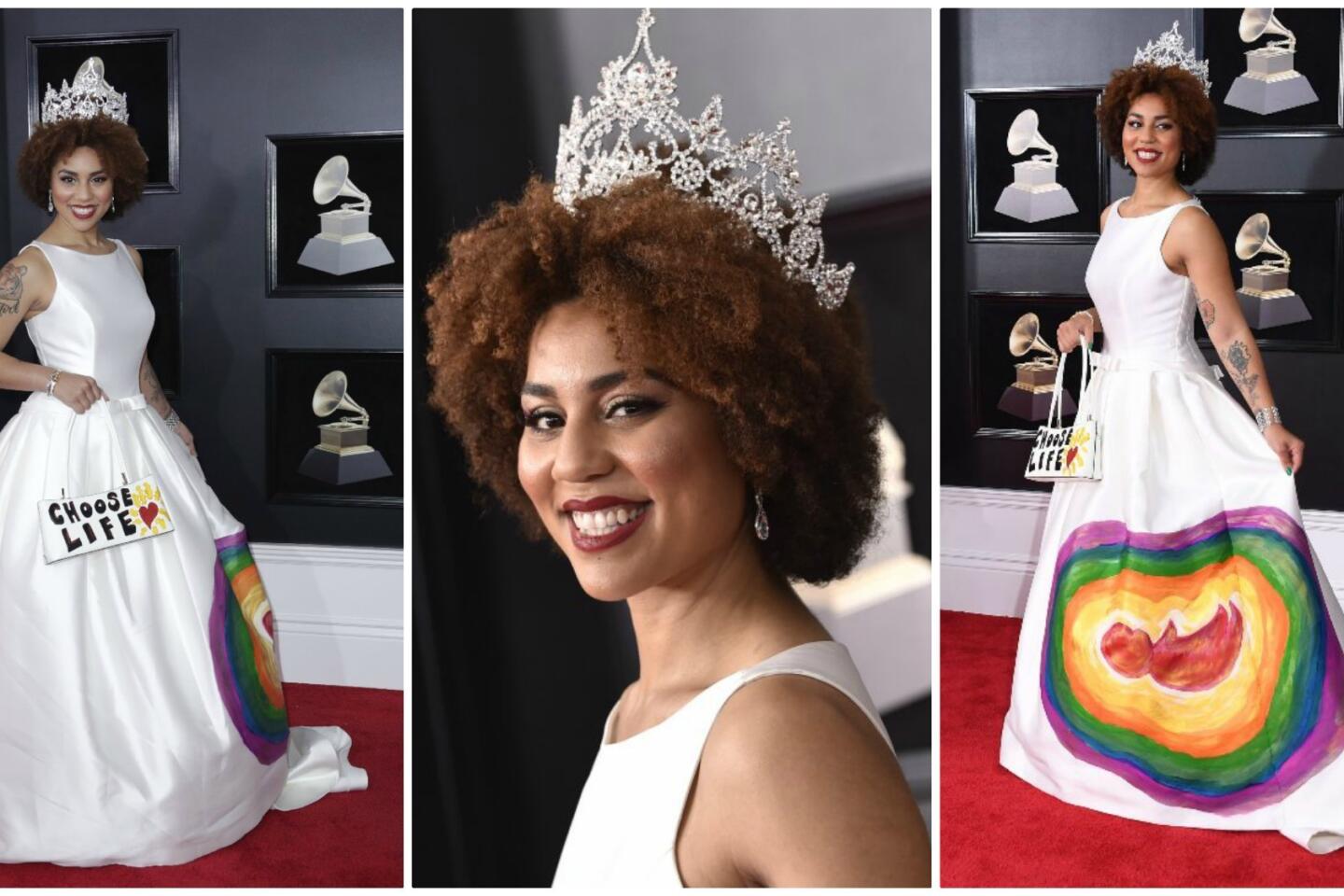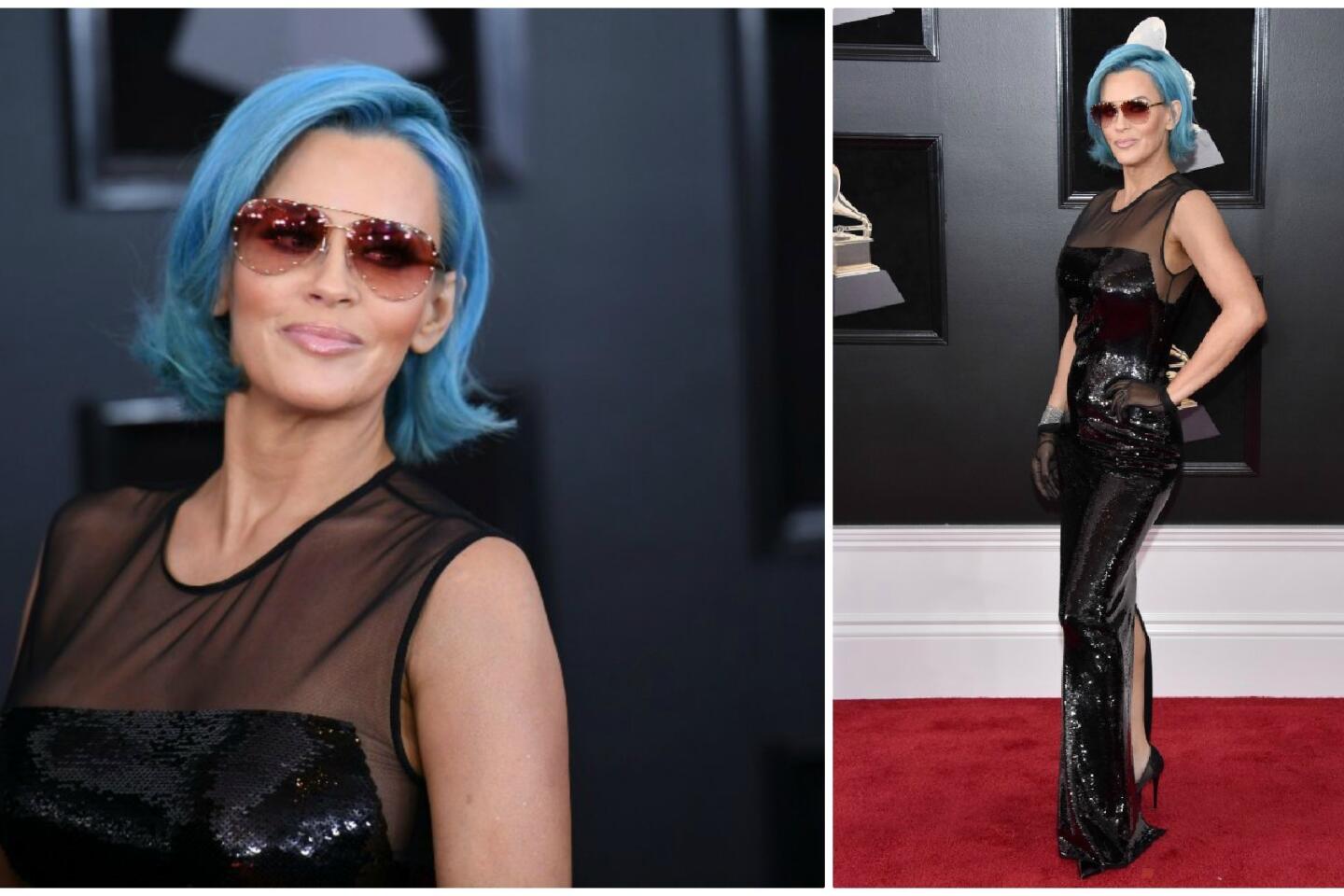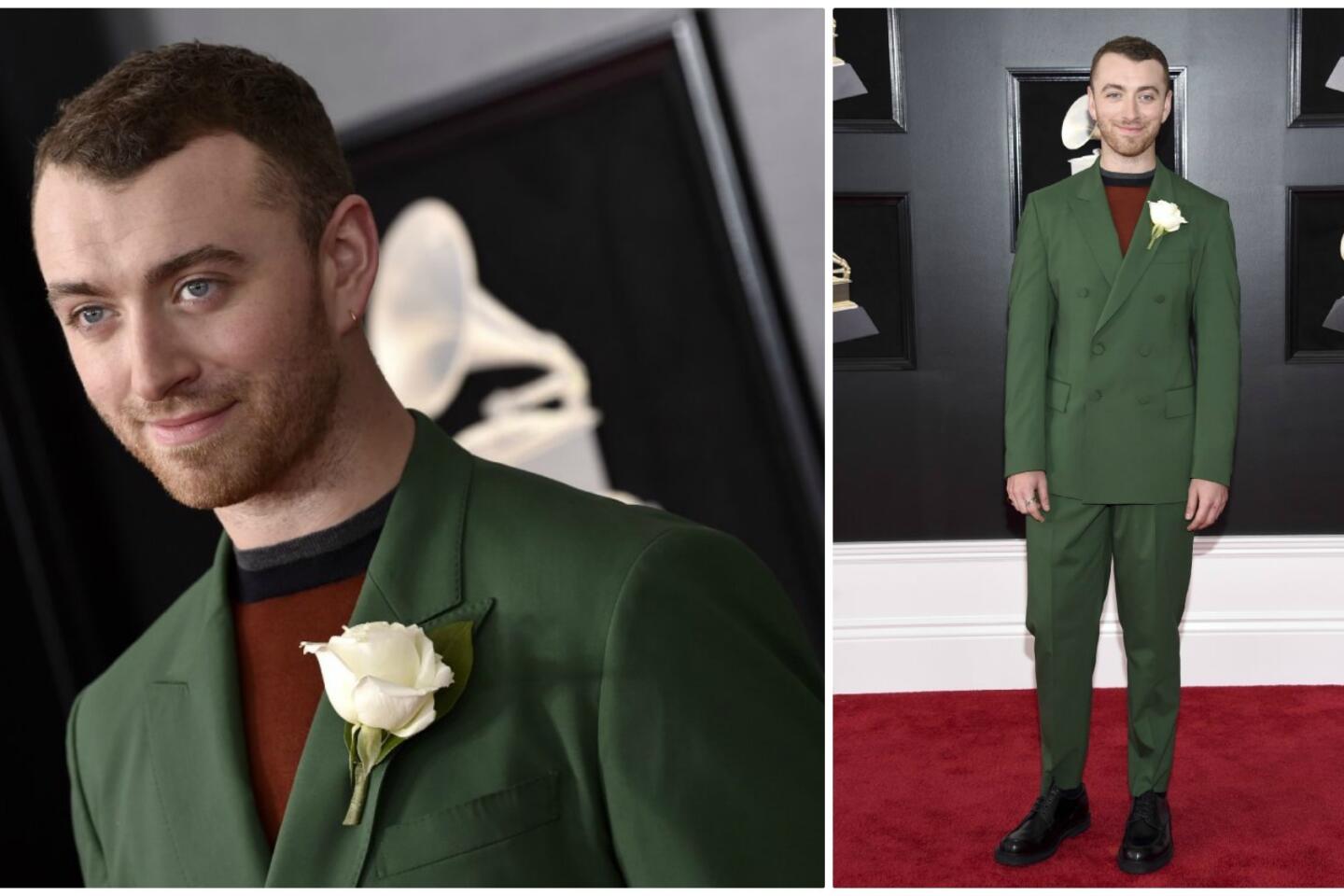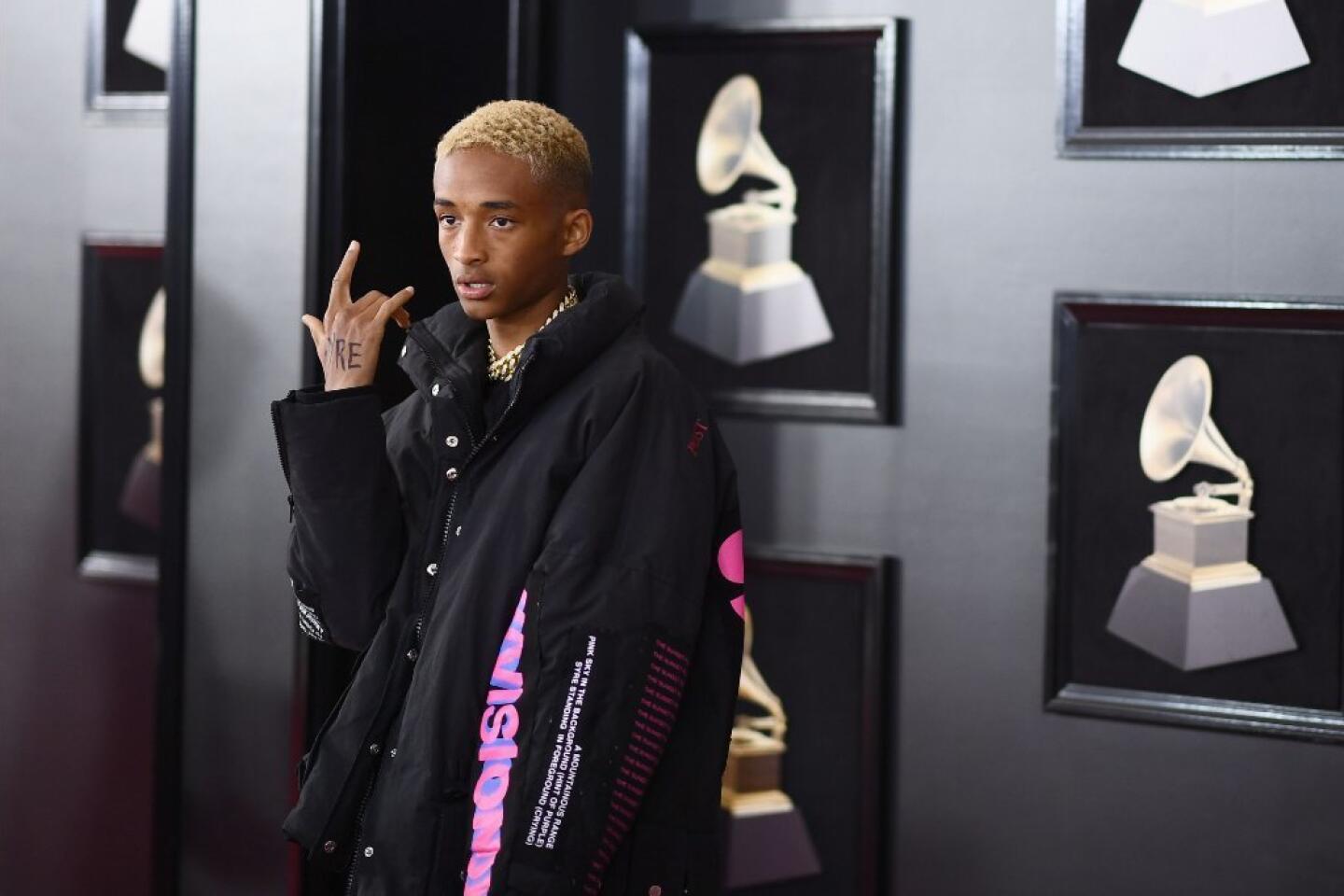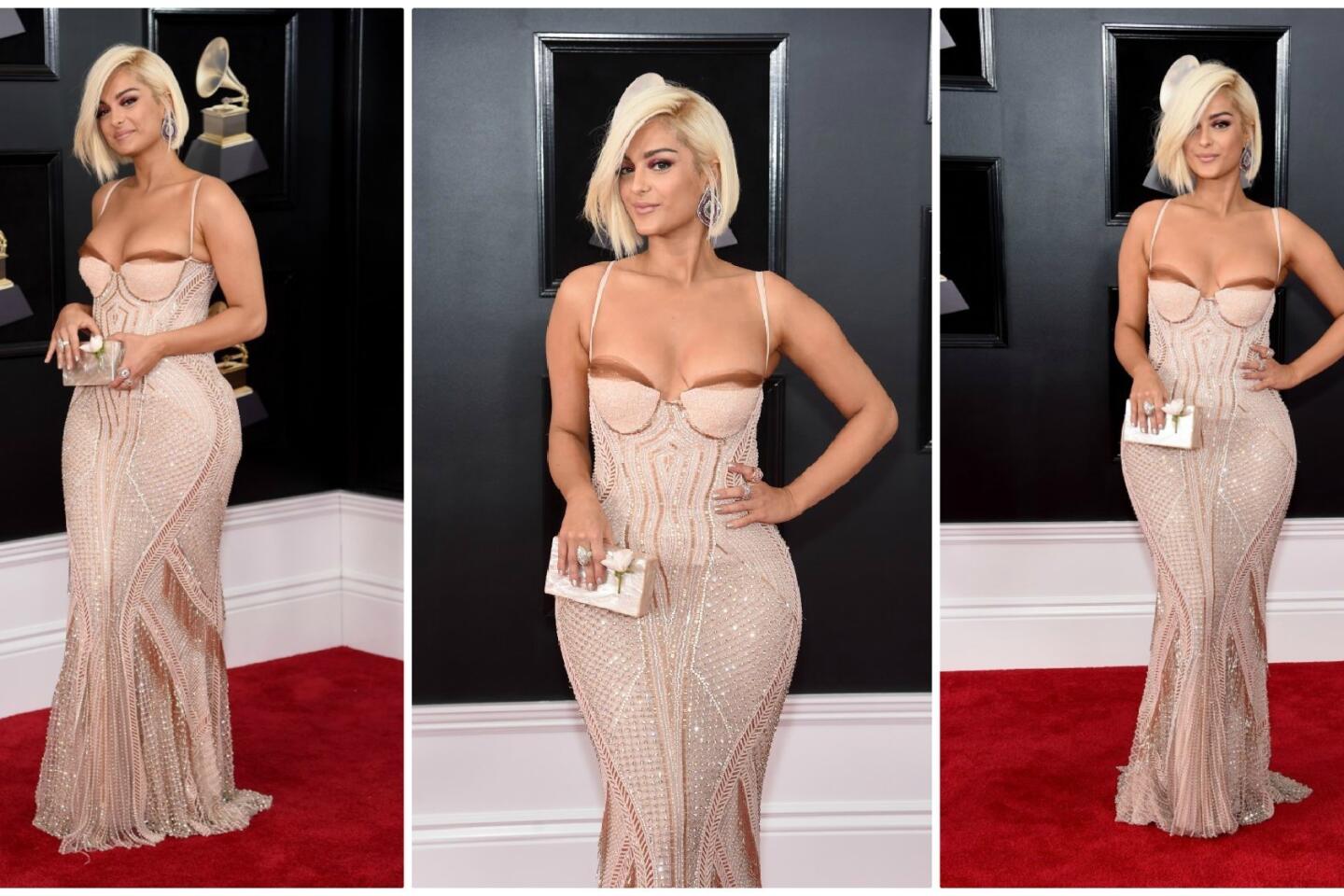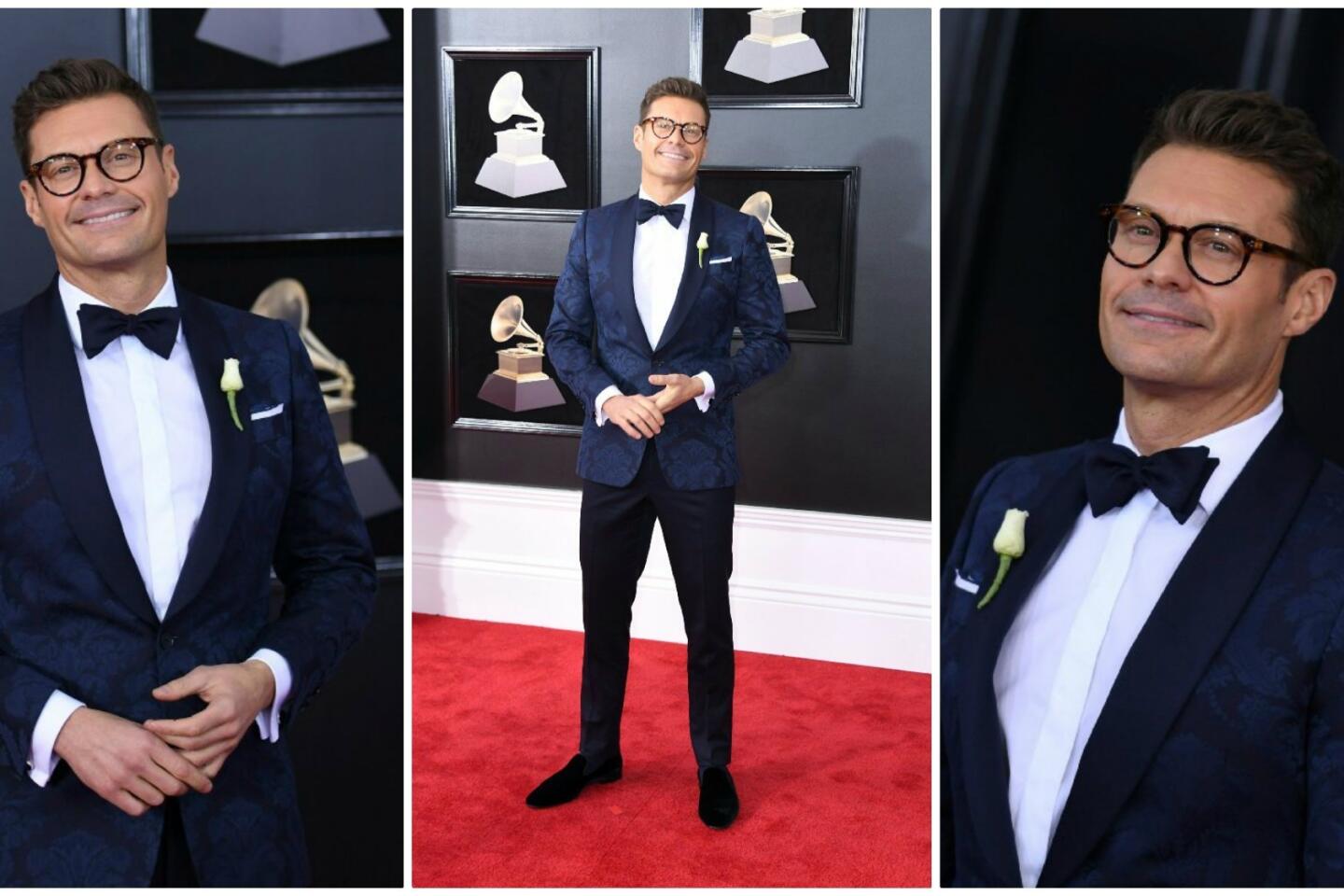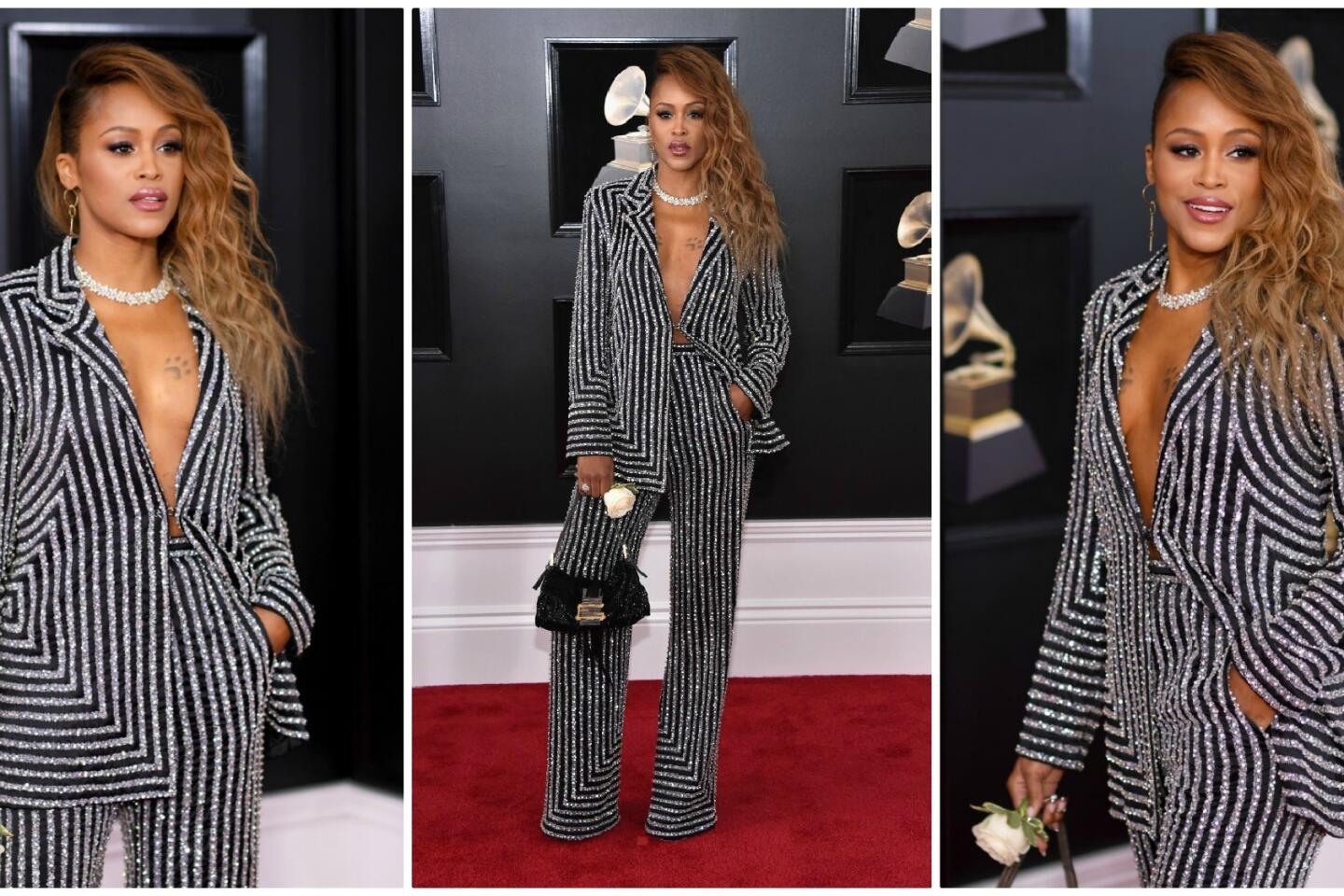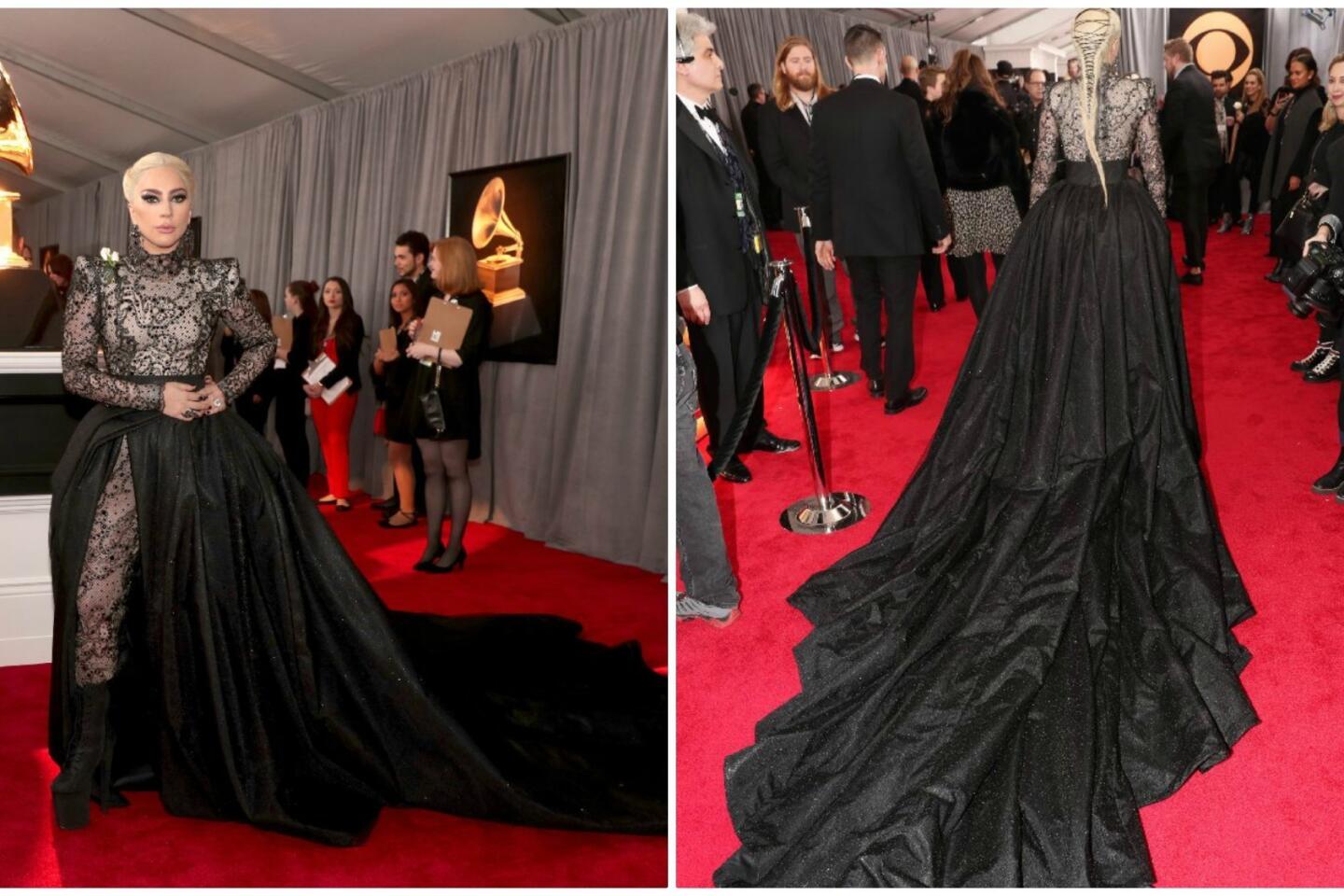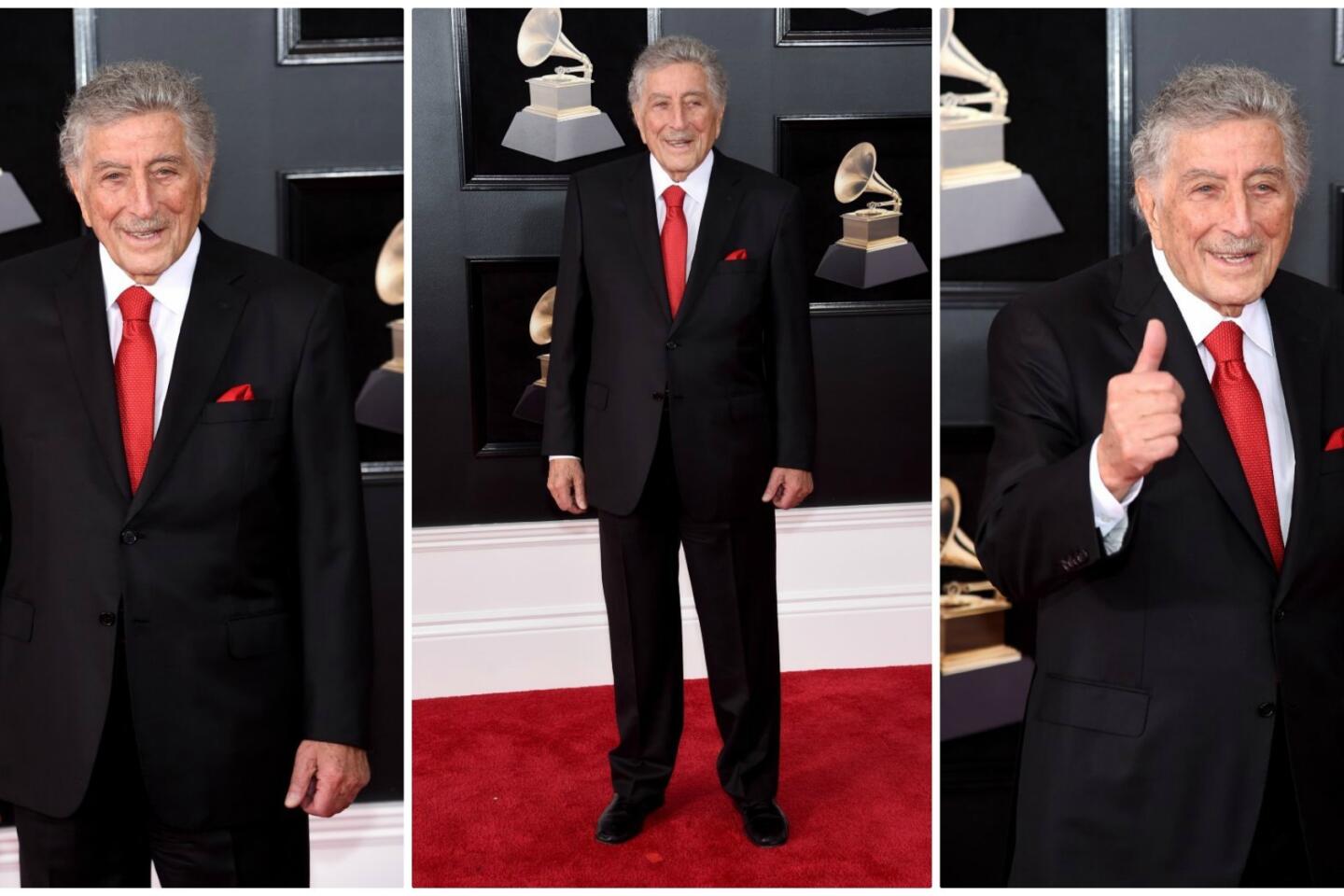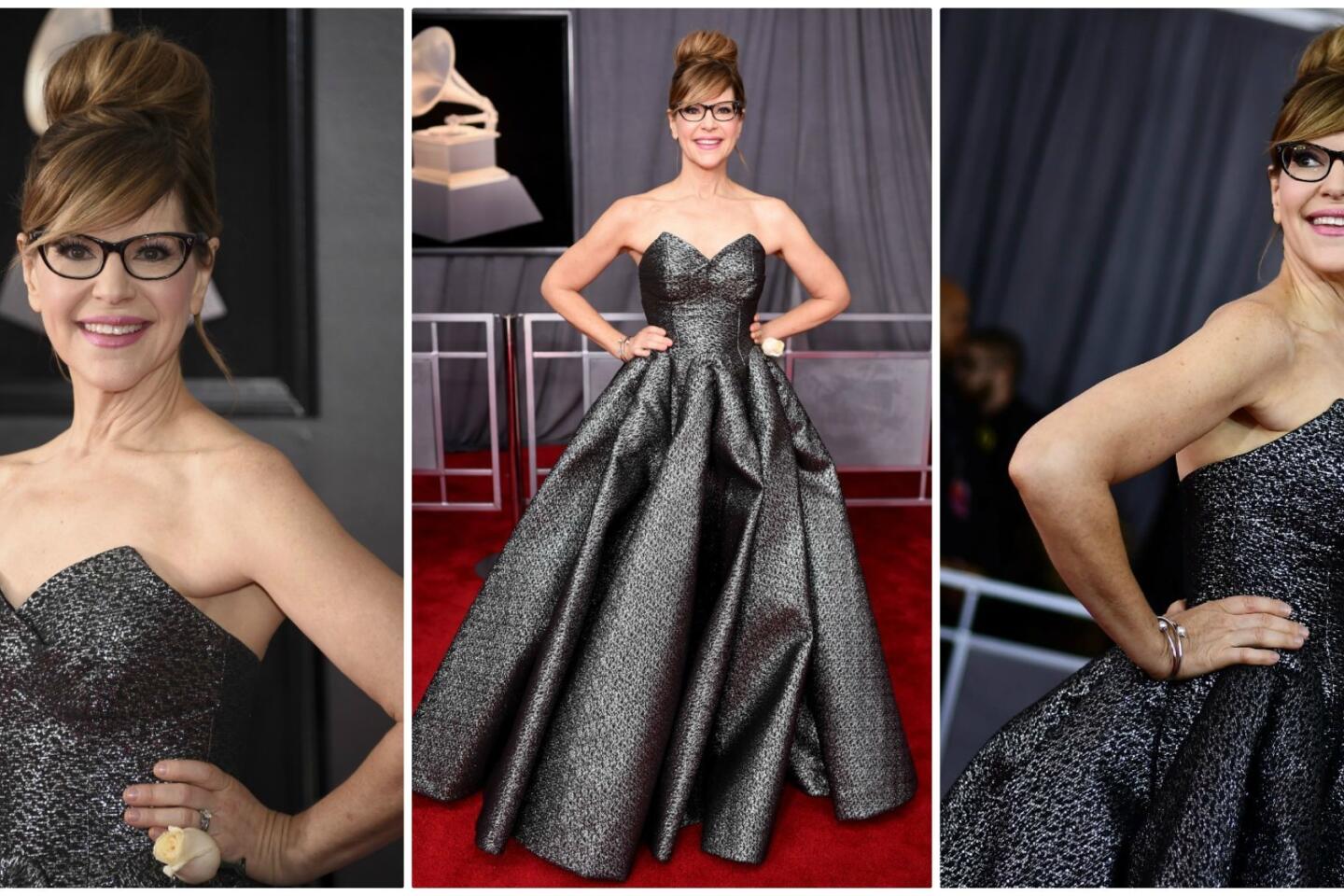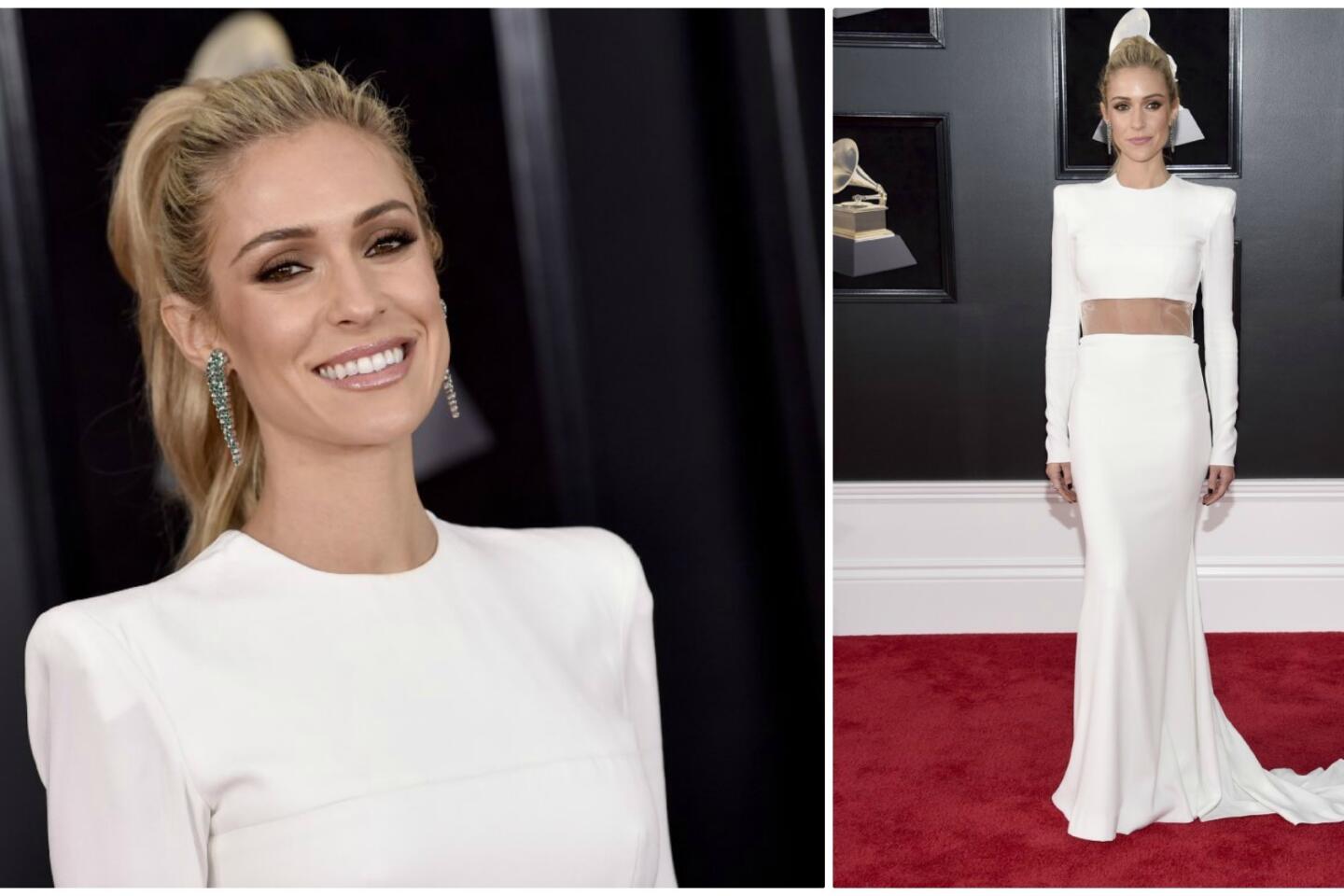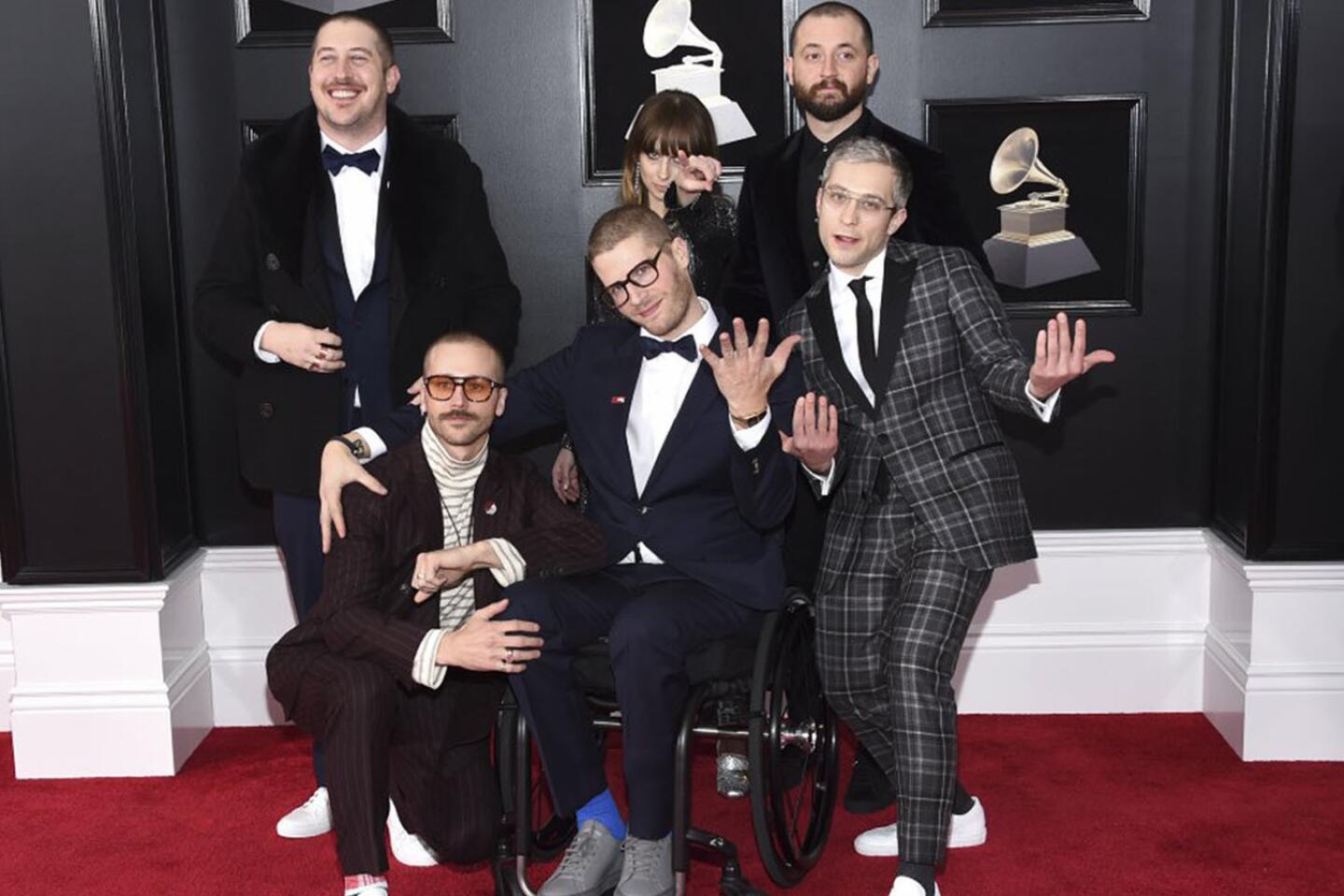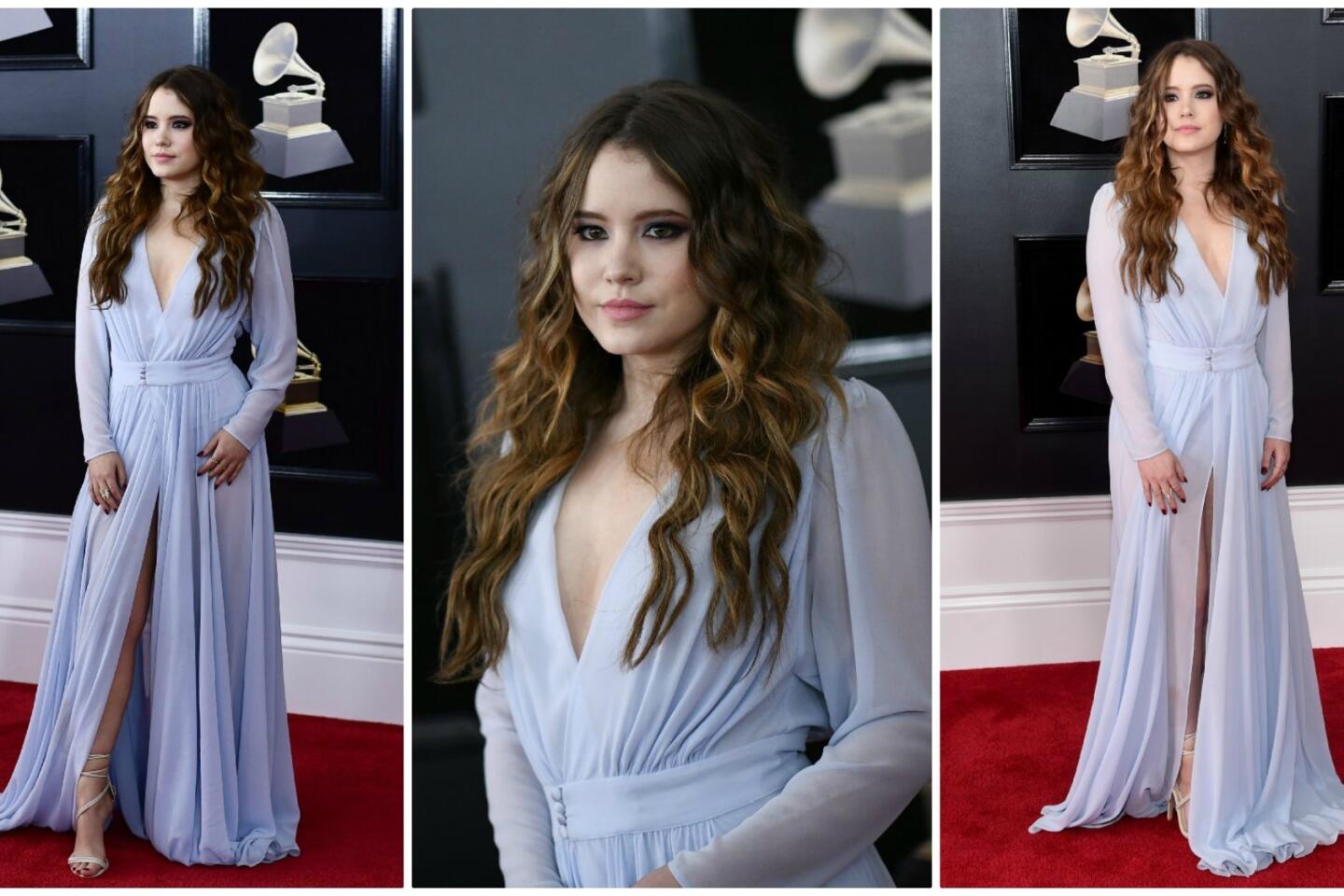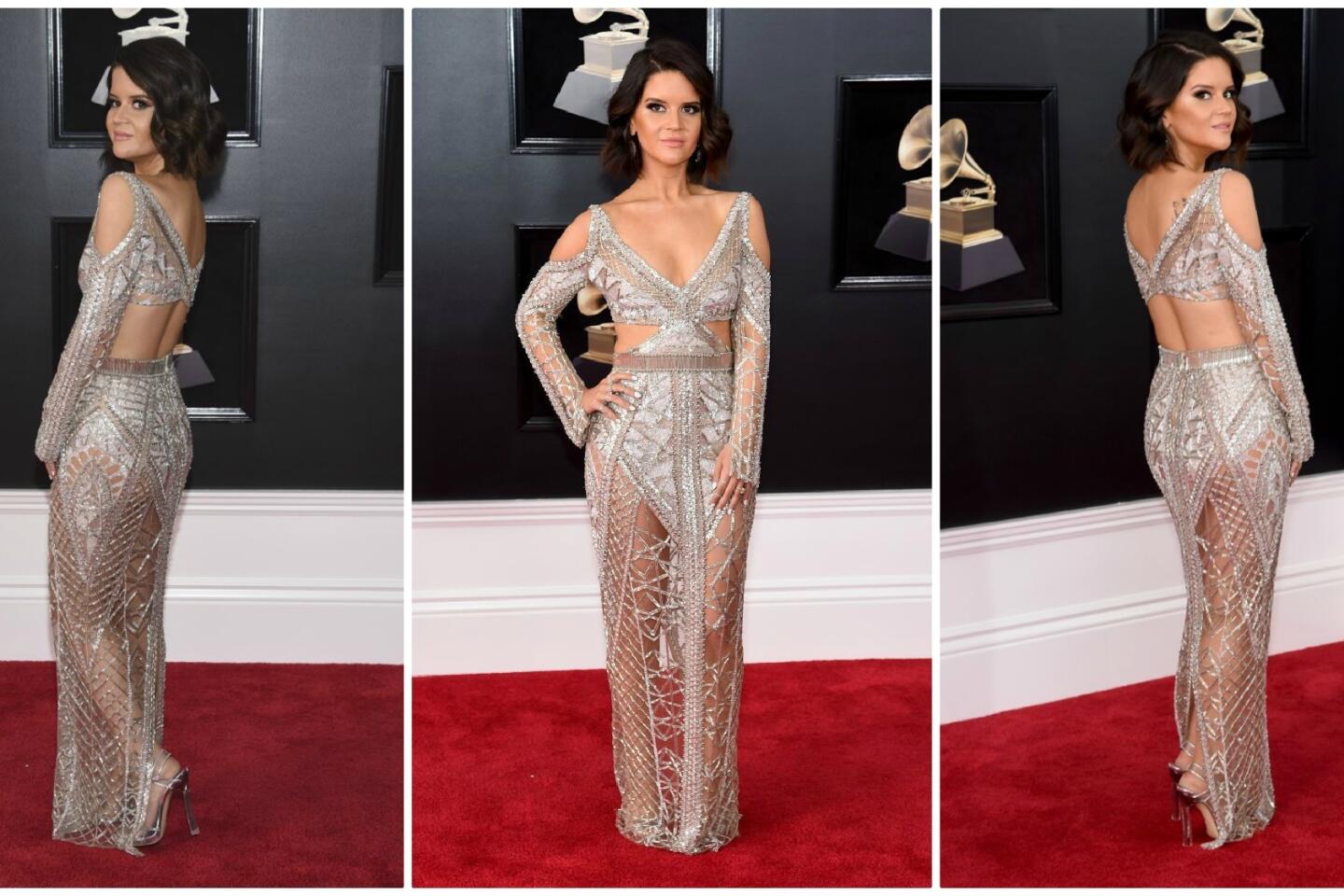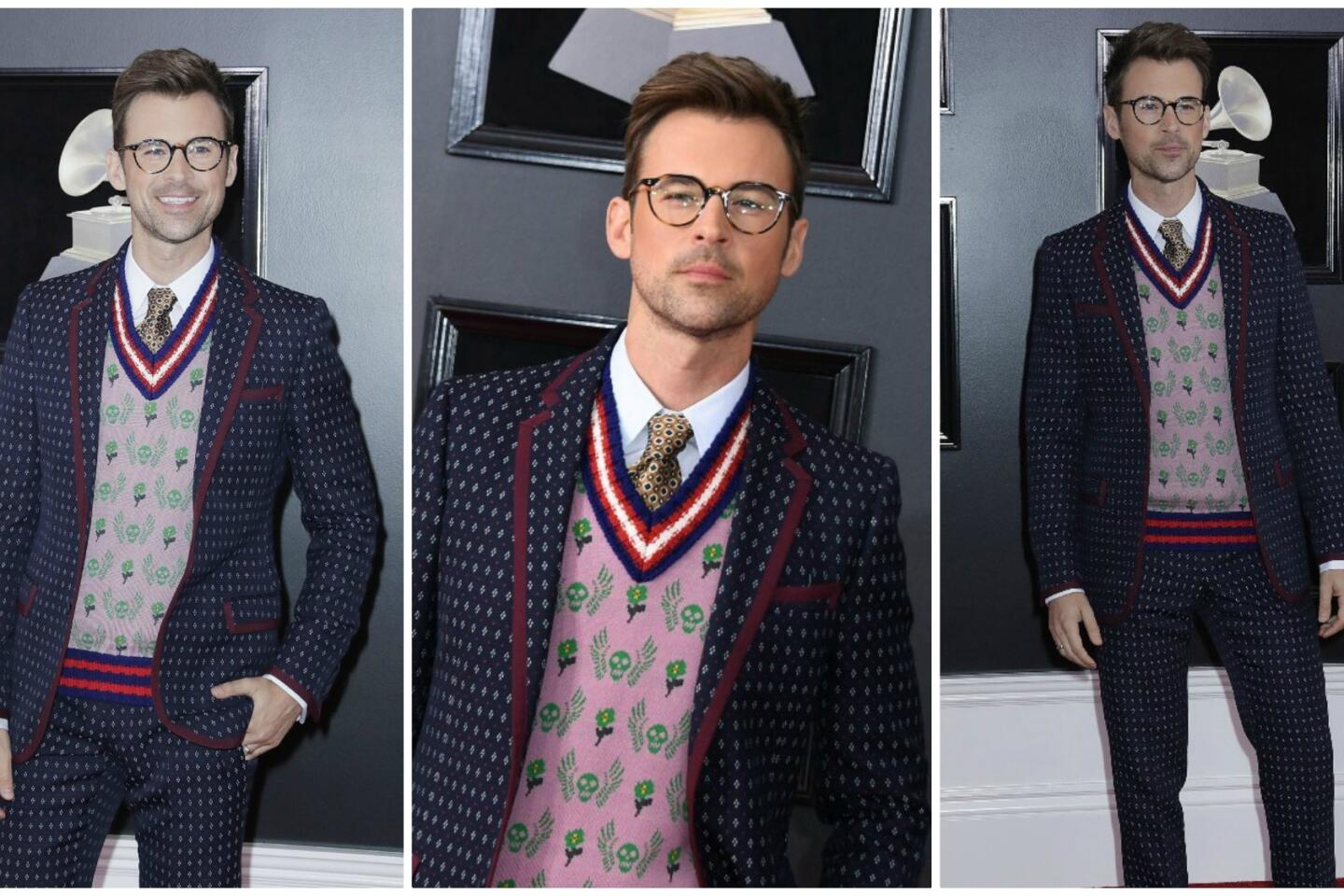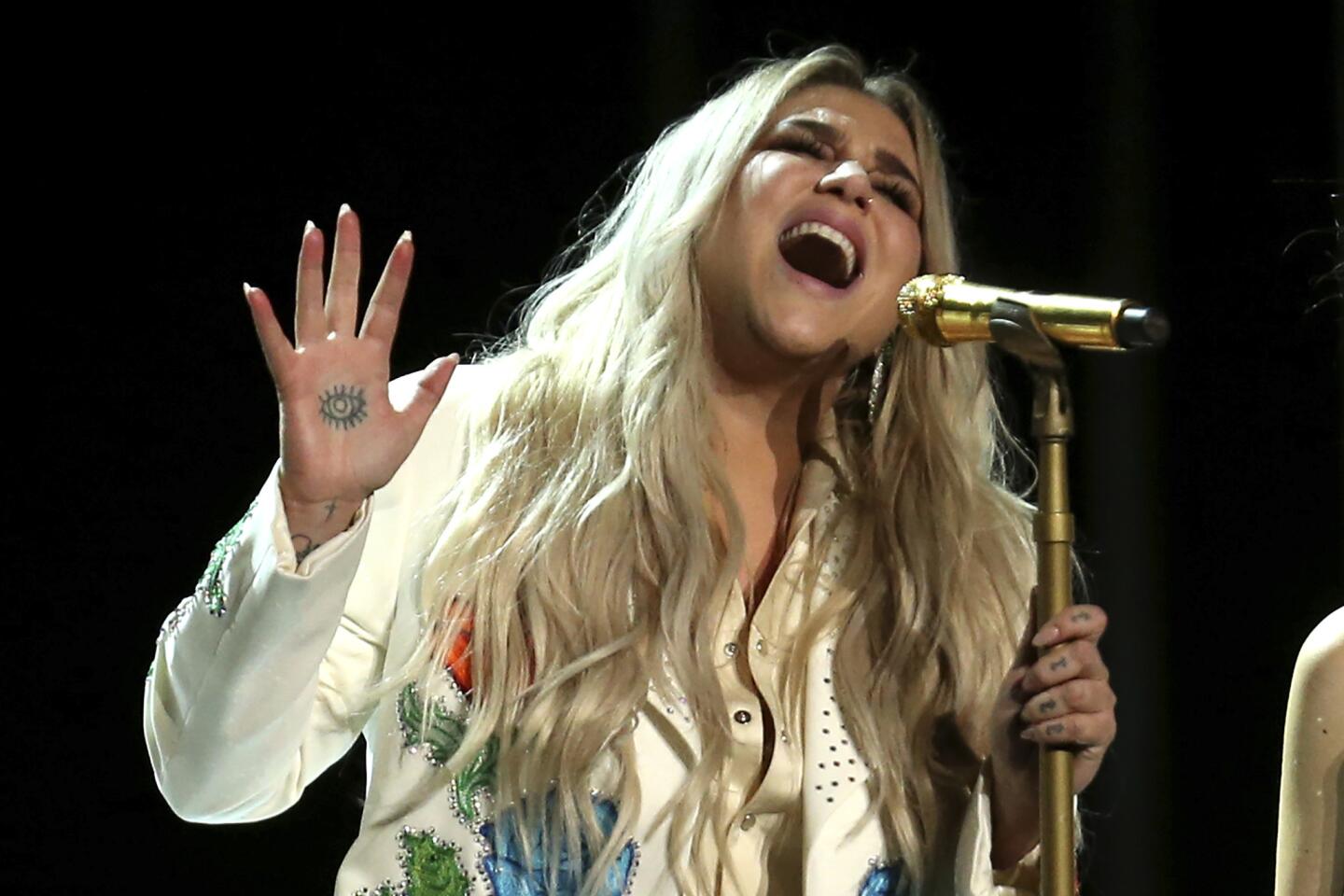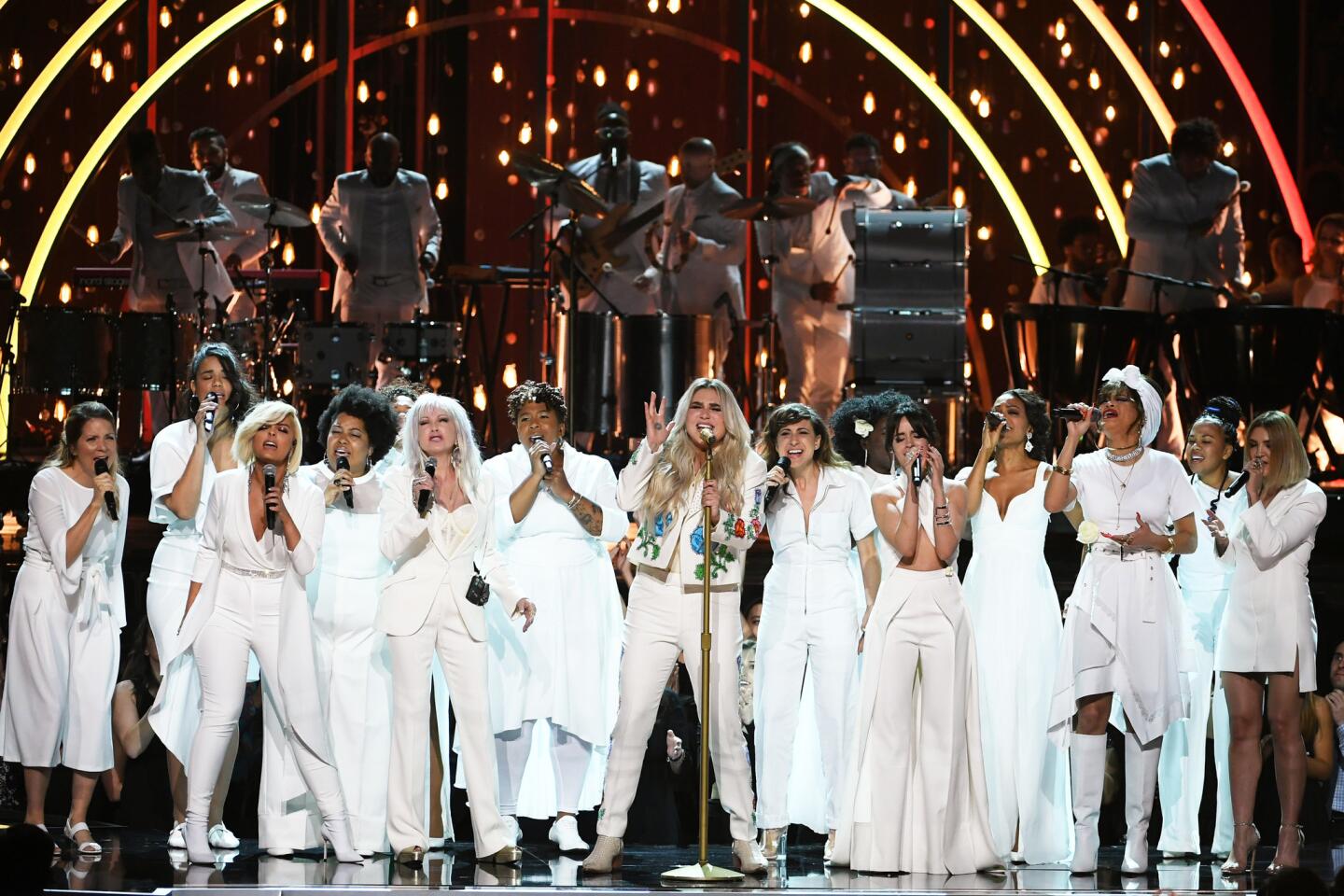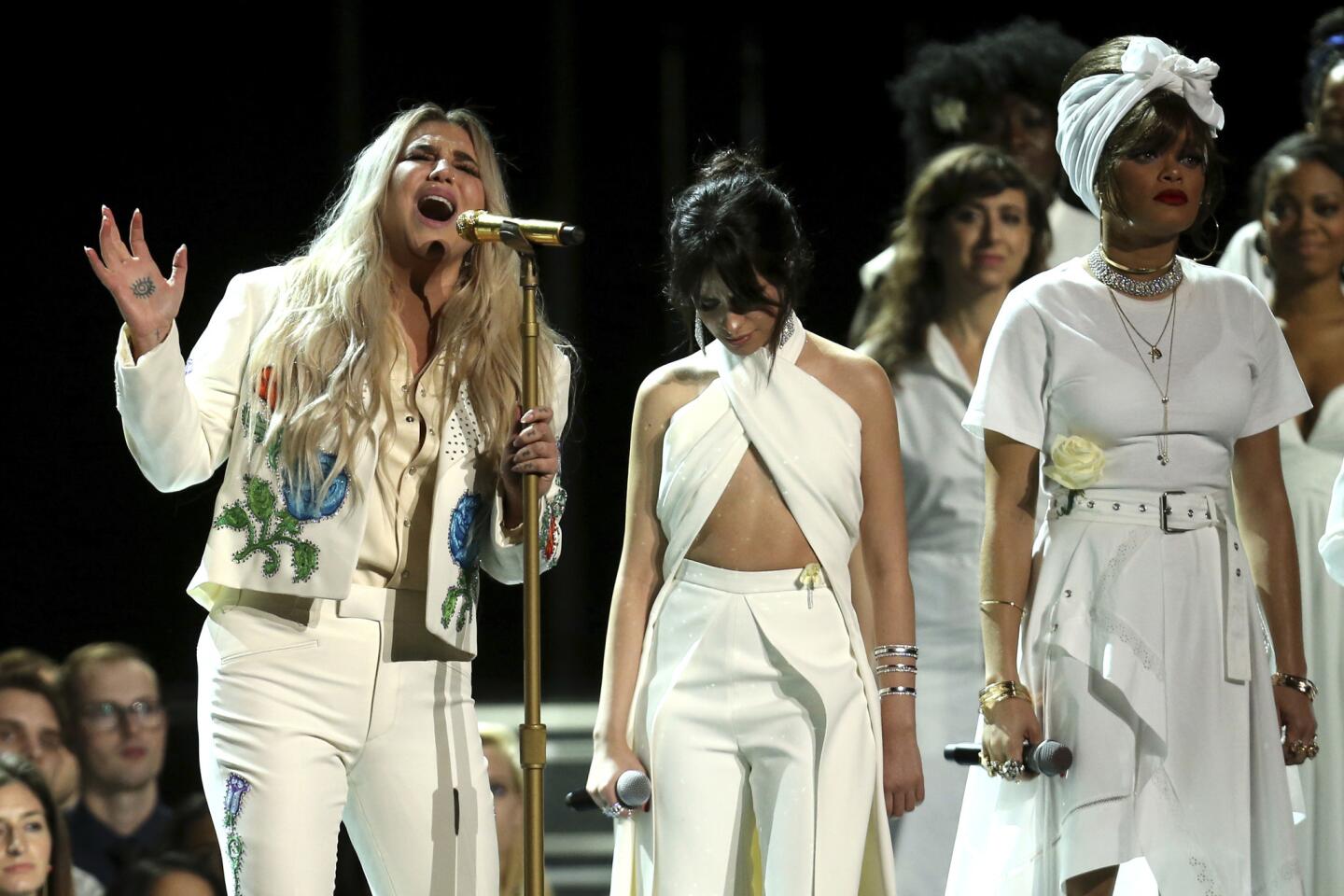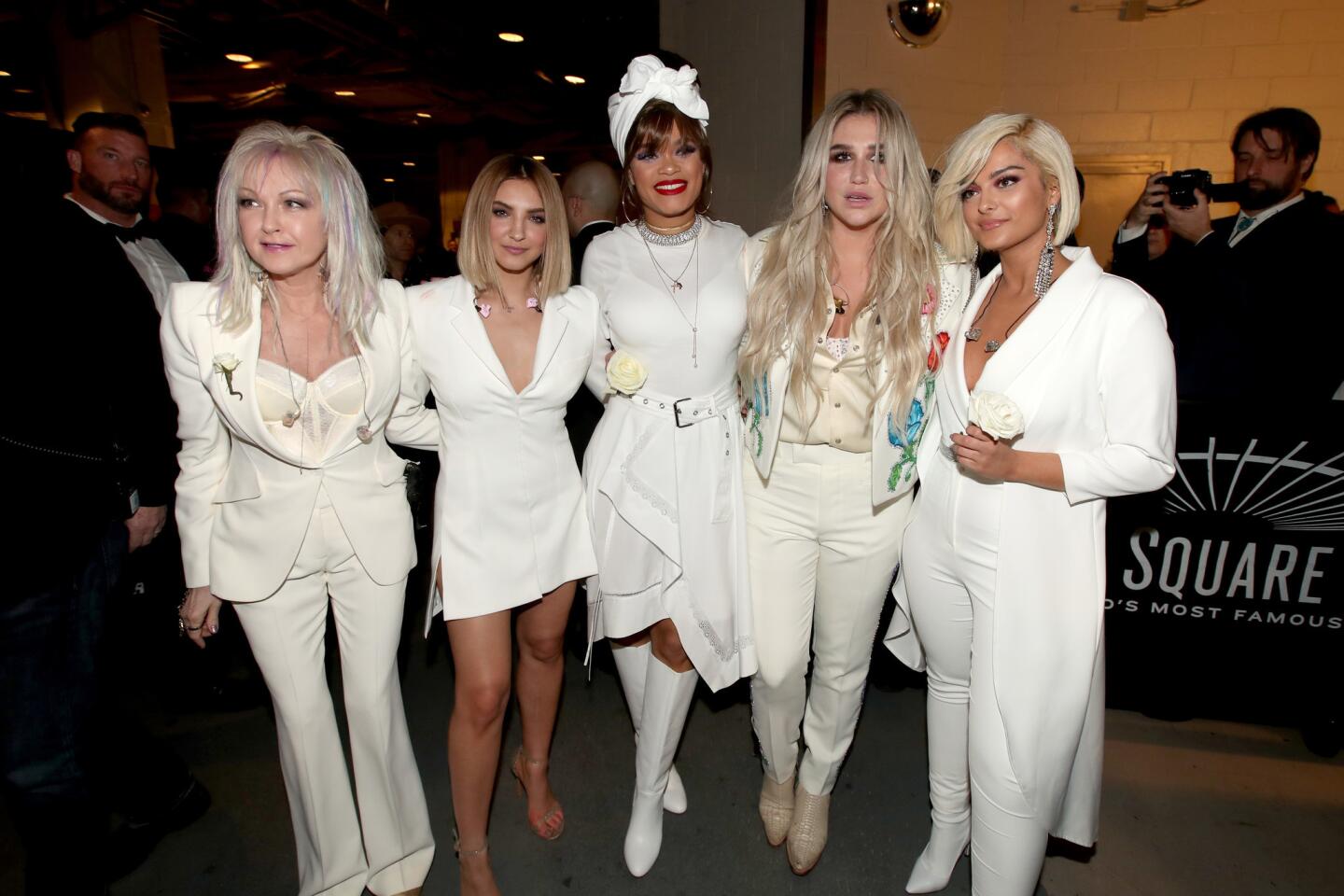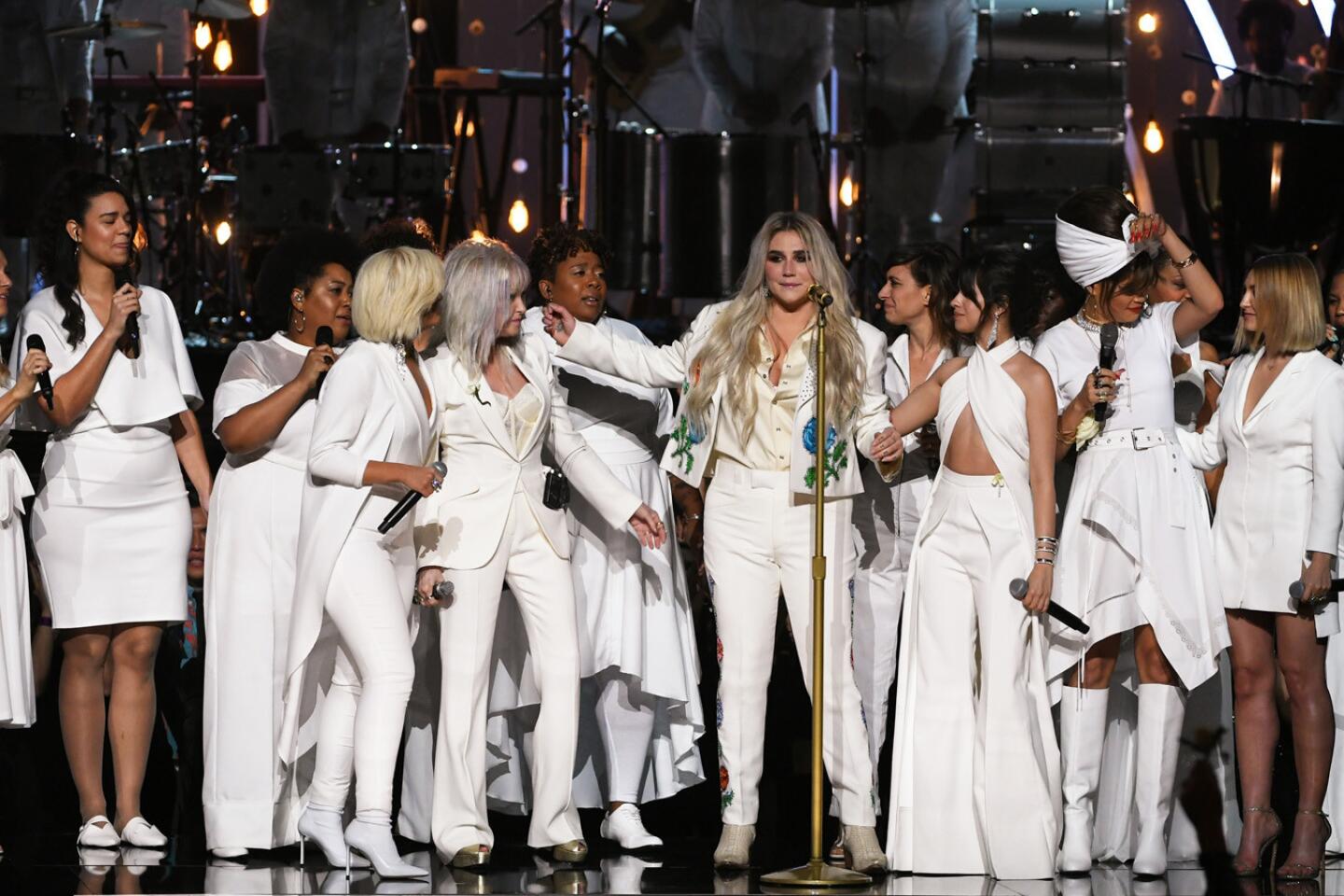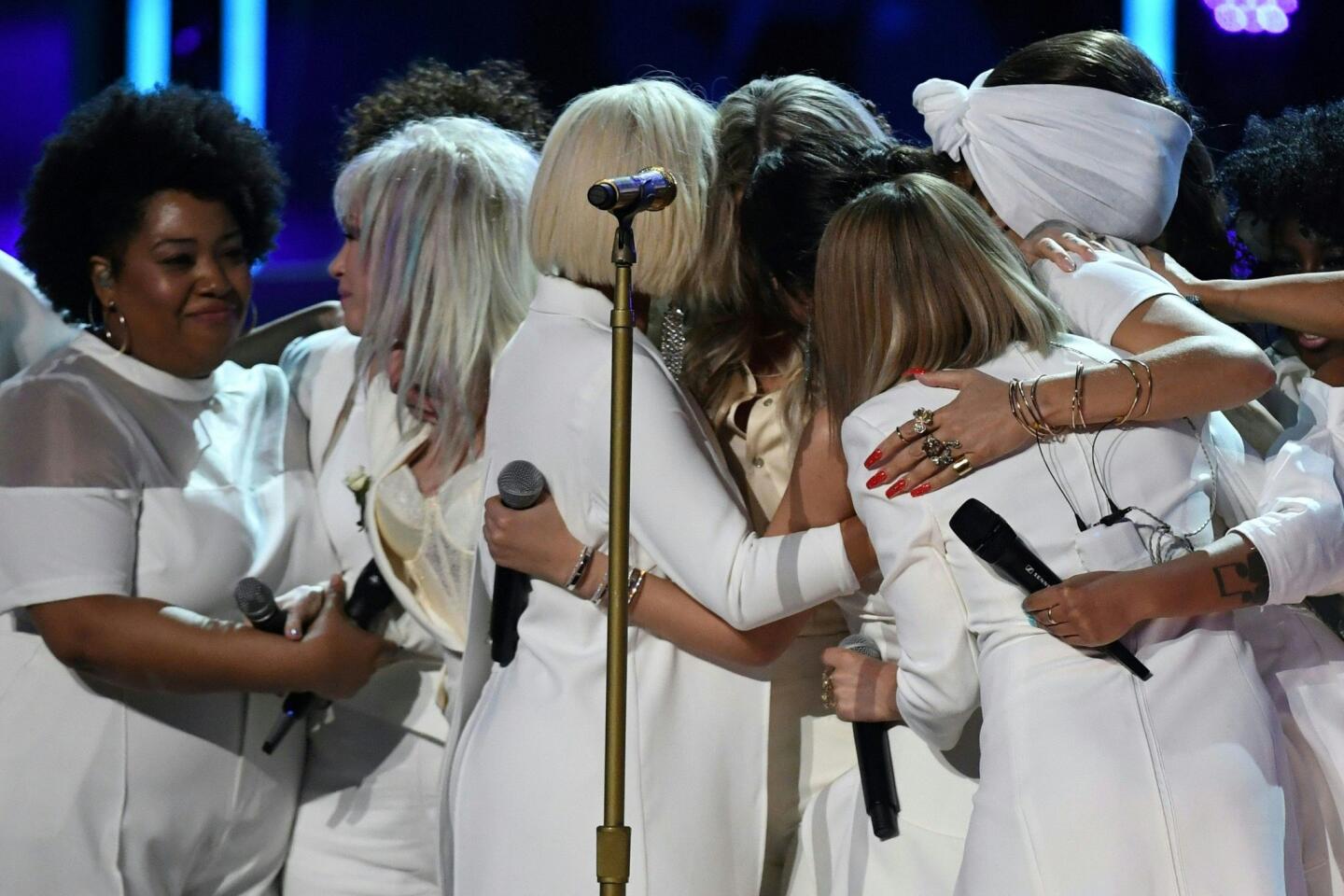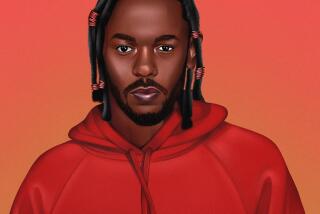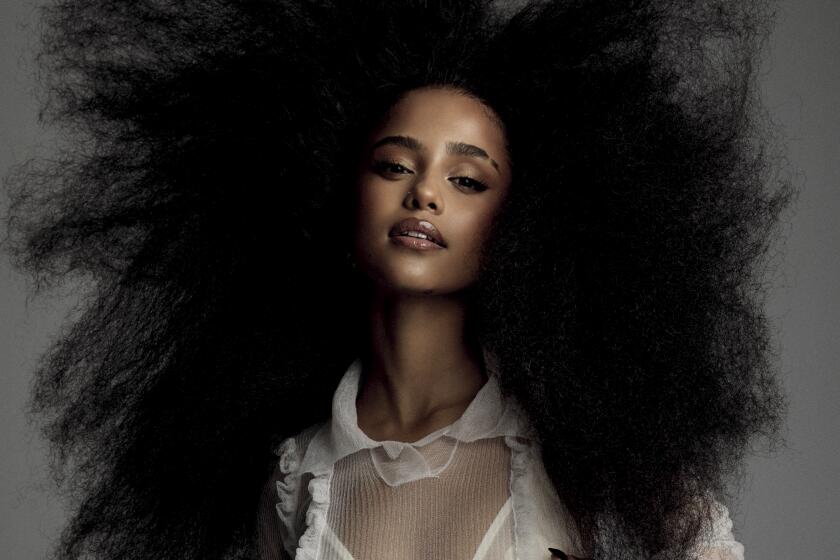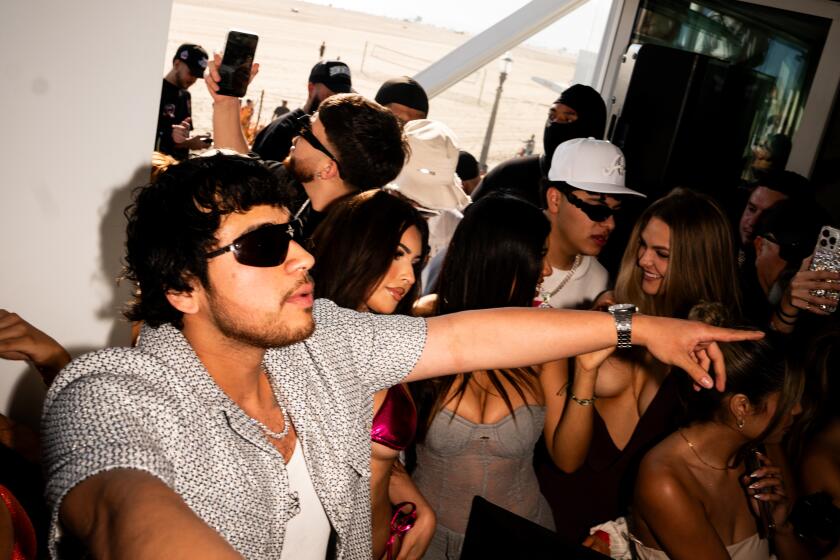Bruno Mars, Kendrick Lamar the big winners at Grammy Awards

The Recording Academy gave album, record and song of the year to Mars. Lamar picked up five of the seven awards for which he was nominated.
It was supposed to be a night when political and social issues took center stage and the music industry fully embraced hip-hop. But when the 60th Grammy Awards were given out Sunday at Madison Square Garden in New York, it was a different tune.
The Recording Academy gave three of its top trophies — album, record and song of the year — to R&B/pop star Bruno Mars’ “24K Magic” album and hit single “That’s What I Like,” an escapist ode to sex by the fire, international travel and other stereotypical “finer things in life” such as Cadillacs, strawberry Champagne, cool jewelry and silk sheets. In all Mars took home six Grammys.
That left the year’s most nominated artists — rappers Jay-Z and Kendrick Lamar — and hip-hop once again shut out of recognition in the Grammys’ most prestigious categories.
Still, Lamar picked up five of the seven awards for which he was nominated, his song “Humble” winning for music video as well as rap song and performance, while “Loyalty,” his track featuring Rihanna, won the rap/sung performance category and “Damn” collected the rap album award. Jay-Z did not win any awards after receiving the most nominations with eight.
Lamar said that along with his Grammy statuettes came a shift in perspective on what making music means to him.
“I thought it was about the accolades and the cars and the clothes,” Lamar said on accepting the rap album Grammy, “but it’s really about expressing yourself and putting that paint on the canvas for the world to evolve for the next listener, for the next generation.”
Another multiple winner was maverick singer-songwriter Chris Stapleton, who dominated the country field, winning three: country album for “From a Room, Vol. 1,” country song for “Broken Halos” and solo performance for the song “Either Way.”
The show, which took place in New York for the first time in 15 years, took place in the midst of the national discussion over sexual harassment.
The issue was addressed at the Grammys on a couple of fronts, most prominently by pop singer-songwriter Kesha via her song “Praying,” which was nominated for pop solo performance. She was accompanied on stage by a chorus of female artists including Cyndi Lauper, Andra Day, Bebe Rexha, new artist nominee Julia Michaels, newcomer Camila Cabello and a choir of female singers, all dressed in white.
The #MeToo/#TimesUp social media campaigns also were the inspiration for a lobbying effort to get participants and attendees to wear white roses. A letter of support signed by nearly 1,000 musicians — female and male — and others was released Sunday as the pre-telecast awards began to be handed out. And #whiterose showed up on more than 20,000 tweets on Sunday alone, Twitter officials reported.
“For those of us attending tonight’s 60th Annual Grammy Awards in New York City, we will wear a white rose, which has historically stood for hope, peace, sympathy, and resistance,” the letter stated. “We hope you all join us in spreading the message of the white rose today. Tonight is music’s biggest night. The world is listening.”
Kesha’s performance segued into a brief speech on immigration from former Fifth Harmony singer Cabello, a Cuban American, who said, “This country was built by dreamers, for dreamers, chasing the American dream.”
It was part of her introduction to Irish rock band U2, and set up a video segment that quoted the inscription on the Statue of Liberty “Give us your tired, your poor, your huddled masses yearning to breath free….”
Musicians also took on the topic of gun violence in another multi-artist segment saluting victims and survivors of the mass shooting in Las Vegas at the Route 91 Harvest country music festival in October that left 58 dead and 851 people wounded.
Country artists Eric Church, who was one of the Route 91 festival headliners, and Maren Morris led a performance of “Tears in Heaven,” the 1992 Grammy-winning record and song of the year that Eric Clapton and country songwriter Will Jennings wrote after the death of Clapton’s young son. :
In the early going Sunday, the Grammys’ pendulum swing toward hip-hop and R&B played out beyond just the domination of nominations in the four general categories of record, album, song and new artist. Pre-telecast awards went to Lamar and HBO’s documentary “The Defiant Ones” profiling rap pioneer Dr. Dre and his longtime business partner, record mogul Jimmy Iovine.
Lamar’s “Humble” from his multiple-nominee album “Damn” won rap performance, rap song and the music video award, while “The Defiant Ones” took the honor for music film.
But even before the awards began being announced, the Grammys were trumped to an extent by a presidential tweet aimed at leading nominee Jay-Z, who gave an interview Saturday night in which he criticized President Trump’s reported remark about “s-hole countries” in Africa during a recent meeting on immigration reform.
Jay-Z called President Trump’s comment “really hurtful because he’s looking down on a whole population of people and he’s so misinformed because these places have beautiful people,” he said to CNN interviewer Van Jones on Saturday.
On Sunday morning Trump tweeted “Somebody please inform Jay-Z that because of my policies, Black Unemployment has just been reported to be at the LOWEST RATE EVER RECORDED!,” a statement news analysts quickly discounted by pointing out that the unemployment rate among African Americans has been steadily declining since 2011, President Obama’s third year in office.
The Grammy telecast took a direct shot at President Trump in a filmed segment in which passages from Michael Wolff’s bestselling book “Fire and Fury: Inside the Trump White House” were read by a string of celebrities including John Legend, Cher, Snoop Dogg, Nikki Minaj, rapper Khaled and Trump’s former political rival, Hillary Clinton.
Another among many of the highest-profile nominations is the juxtaposition of songs tackling weighty subjects of mental health, suicidal tendencies and racial identity against escapist fare celebrating romantic aspirations and longings.
Recording Academy voters had the chance to heap accolades on rapper Logic’s “1-800-273-8255,” his heartfelt portrait of teenage angst that takes as its title the phone number for the National Suicide Prevention Lifeline. Instead, they opted for “That’s What I Like.”
Nevertheless, Logic put his message across during his performance of the song, and appended his own plea on behalf of immigrants, as the London-born, Beverly Hills rapper said, “Together we can build not just a better country but a world that is destined to be united.”
Nominations spread across 84 categories have been lauded this year for more closely reflecting the most relevant performers and sounds in today’s pop music, something the Grammy Awards haven’t always been able to claim.
In the four general categories of record, album, song and new artist, nominations skewed heavily to hip-hop and R&B music, with artists of color and women dominating — an expression of diversity the motion picture academy has struggled with in recent years and seems to have addressed in the just-announced Oscar nominations.
Younger music fans also lean more heavily on YouTube and music streaming to discover and experience music than older consumers, although all age groups have been shifting steadily to streaming rather than owning music over the past decade.
Videos for the nominated records span viewership numbers from a low of 57 million YouTube hits for Jay-Z’s “The Story of O.J.,” his exploration into what it means to be black today, to a staggering 4.7 billion views — YouTube’s highest ever — for Fonsi and Daddy Yankee’s “Despacito,” their relentlessly rhymed, irresistibly singalong manifesto of sexual seduction.
By contrast, equivalent sales figures for the album of the year nominees pale in comparison to blockbuster collections from previous years.
Just 167,000 copies of New Zealand singer-songwriter Lorde’s “Melodrama,” to the high of 1.2 million copies for “24K Magic” by song-and-dance man Mars, this generation’s Michael Jackson.
It’s been rare throughout Grammy history that not one but two nominated albums — “Melodrama” and Jay-Z’s “4:44,” which has logged total equivalent sales of 405,000 copies to date — fall short of the industry gold standard of 500,000 copies for albums.
Rappers Jay-Z, Lamar and hip-hop producer No I.D. (a.k.a. Ernest Dion Wilson) accounted for a combined 20 nominations, while R&B-pop performers Mars, Childish Gambino, Khalid and SZA racked up 21.
Follow @RandyLewis2 on Twitter.com
For Classic Rock coverage, join us on Facebook
More to Read
The biggest entertainment stories
Get our big stories about Hollywood, film, television, music, arts, culture and more right in your inbox as soon as they publish.
You may occasionally receive promotional content from the Los Angeles Times.
